Arnold School of Public Health 50th Anniversary
50 Careers for 50 Years
To celebrate the school’s 50th anniversary in 2025, we’re profiling 50 of our distinguished alumni who have made positive impacts on public health research, education, policy and practice. This sample of our graduates serves to reflect the impressive impact that all our alumni have had on the field of public health over the last half century. Be sure to check back throughout the year as we add more alumni profiles and count our way up to 50 careers for 50 years.

Megan Weis
MPH (2002) & Ph.D. (2012) in Health Promotion, Education, and Behavior

Adam Mayer
B.S. in Exercise Science, 2015
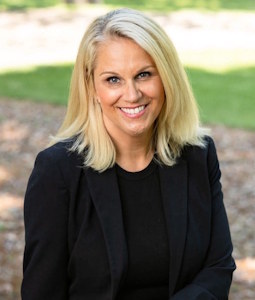
Jessica Seel
MPH in Health Promotion, Education, and Behavior, 2016
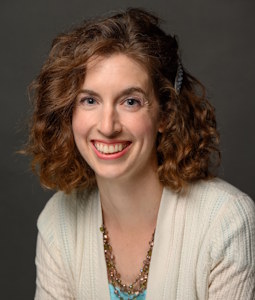
Jean Marie Place
MPH (2009) & Ph.D. (2013) in Health Promotion, Education, and Behavior
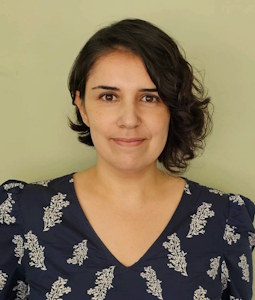
Ebru Cayir Burke
Ph.D. in Health Promotion, Education and Behavior, 2017
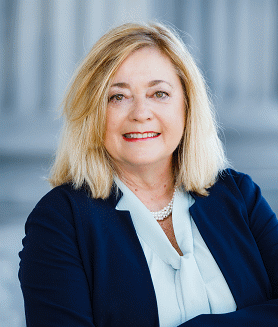
Myra Reece
MPH in Environmental Health Sciences, 1993
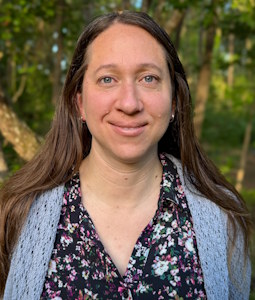
Christy Kollath-Cattano
Graduate Certificate in Public Health, 2010
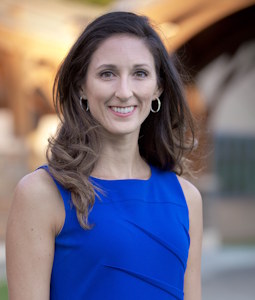
Leanna Ross
M.S. (2013) and Ph.D. (2017) in Exercise Science
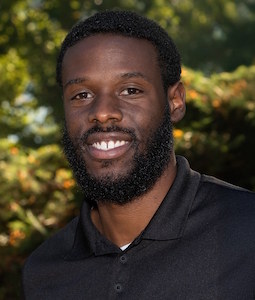
Dom Francis
B.S. in Exercise Science (2016) & MPH in HSPM (2017)
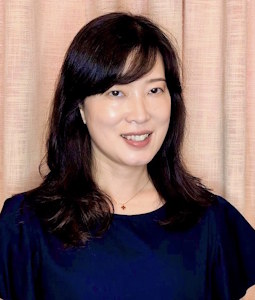
Fei Ye
MSPH (2004) & Ph.D. (2007) in Biostatistics
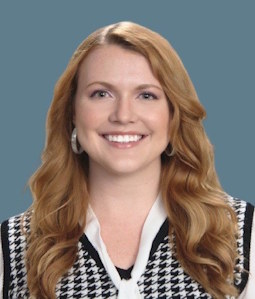
Allissa Desloge
B.A. in Public Health, 2017
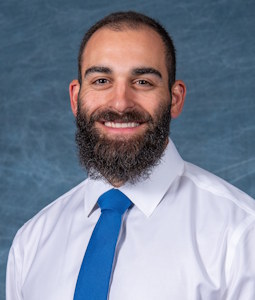
Harry Cintineo
Ph.D. in Exercise Science, 2022
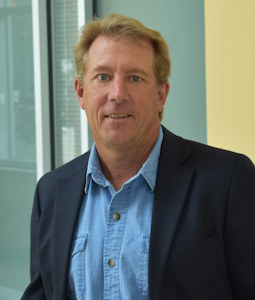
Jeff Woods
Ph.D. in Exercise Science, 1992
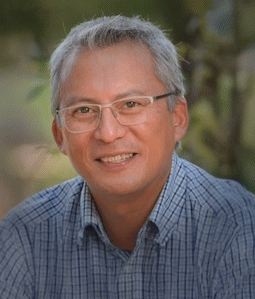
Romel Lacson
MPH in Health Behavior and Evaluation, 1996
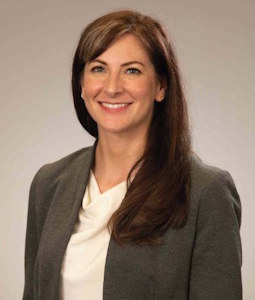
Sara Goldsby
MPH in Health Services Policy & Management, 2015
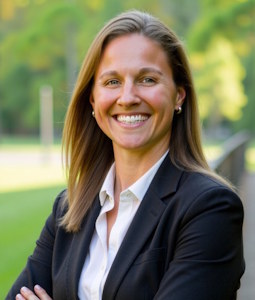
Elise Matthews
B.S. (2004) & M.S. (2006) in Exercise Science
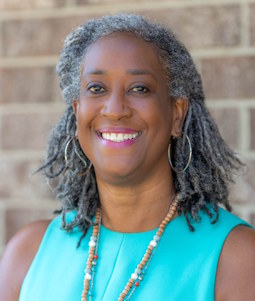
Juliet Stoute-White
Ph.D. in Communication Sciences and Disorders, 2003
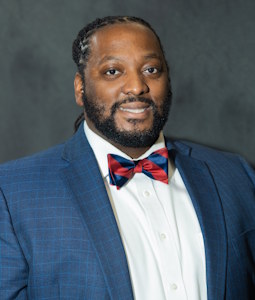
Edward "Ty" Collier
B.S. in EXSC (2008) & Doctor of Physical Therapy (2011)
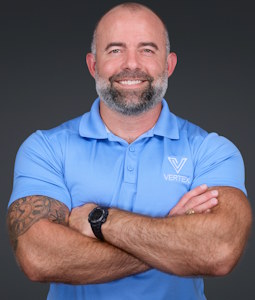
Brandon Vaughn
Doctor of Physical Therapy, 2010
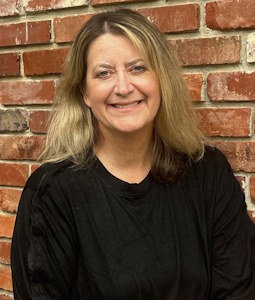
Meredith Arnau
B.S. in Exercise Science, 1990
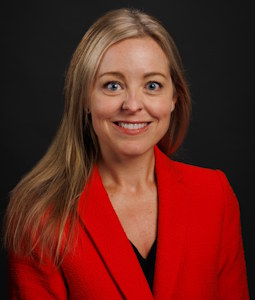
Sara Shuger Fox
Ph.D. in Exercise Science, 2010
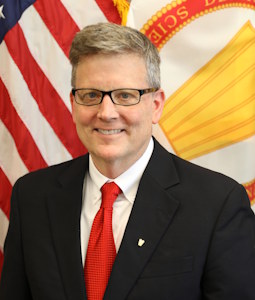
David Moore
Ph.D. in Environmental Health Sciences, 1988
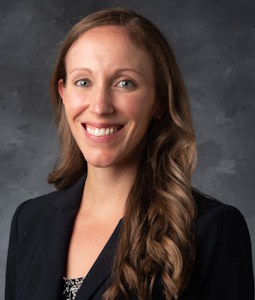
Kara Whitaker
MPH (2011) and Ph.D. (2015) in Exercise Science
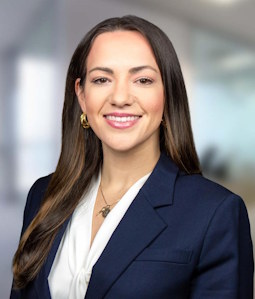
Ashley Umbriano
B.S. in Public Health (2017) & MPH in HSPM (2018)
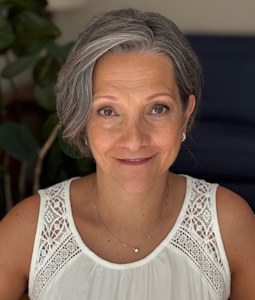
Tamar Schlekat
MSPH in Environmental Quality, 1998
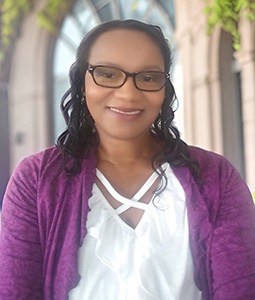
Angela McLeod
Ph.D. in Communication Sciences and Disorders, 2004
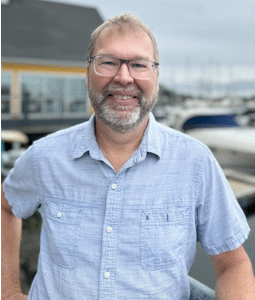
Heath Kelsey
MSPH (2000) & Ph.D. (2006) in ENHS
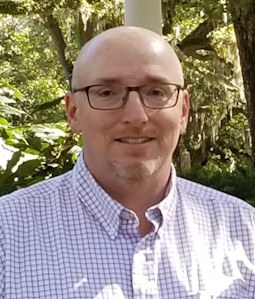
Paul Pennington
Ph.D. in Environmental Health Sciences, 2002
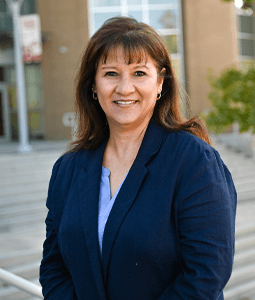
Edena Guimaraes
MPH (1994) & DrPH (2011) in HPEB
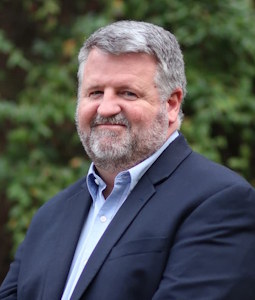
Graham Adams
MPH (1994) & Ph.D. (2000) in HSPM
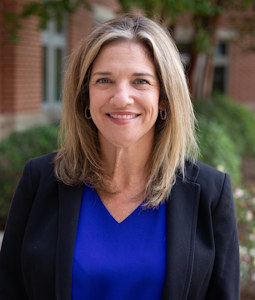
Victoria Henbest
Ph.D. in Communication Sciences and Disorders, 2020
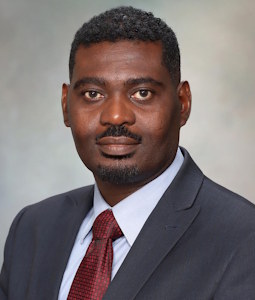
Samuel O. Antwi
Ph.D. in Epidemiology, 2015
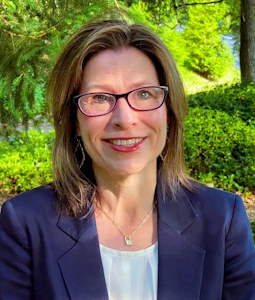
Charity G. Patterson
MSPH (1997) & Ph.D. (2000) in Biostatistics
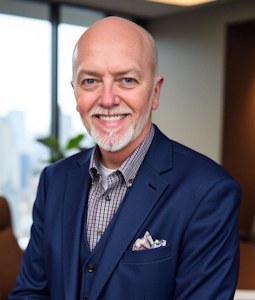
K. Todd Houston
MSP (1991) & Ph.D. (1999) in Speech-Language Pathology
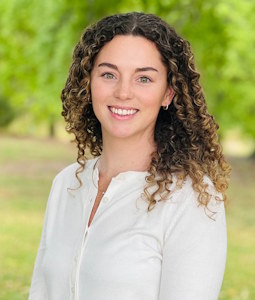
Shea McCarthy
M.S. in Environmental Health Sciences, 2020
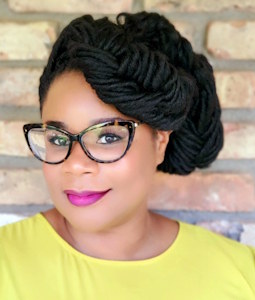
Venice Haynes
Ph.D. in Health Promotion, Education, & Behavior, 2019
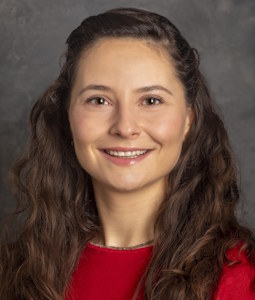
Anja Zgodic
Ph.D. in Biostatistics, 2023
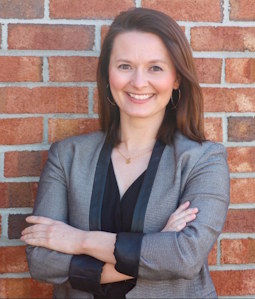
Sara Ballentine
Master of Health Administration, 2014
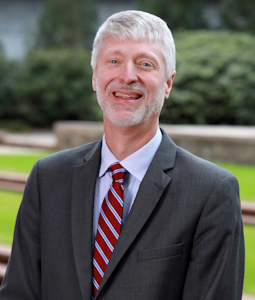
Jay Hamm
Master of Health Administration, 2000
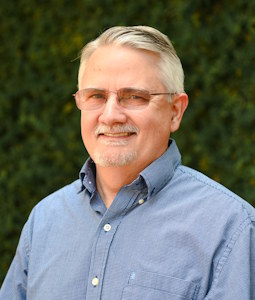
Doug Taylor
MPH in Health Promotion, Education, & Behavior, 1995
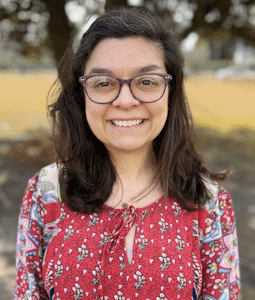
Jordan Slice-Metcalfe
B.A. in Public Health, 2010
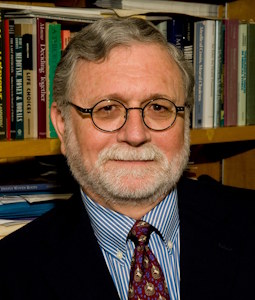
Robert McKeown
Ph.D. in Epidemiology, 1991
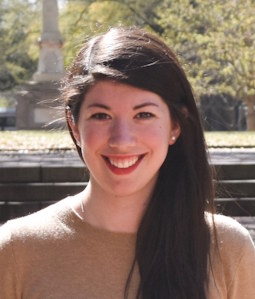
Jennifer Mandelbaum
Ph.D. in Health Promotion, Education, & Behavior, 2022
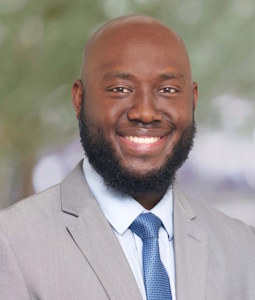
Elijah Christian
MPH in Health Services Policy & Management, 2017
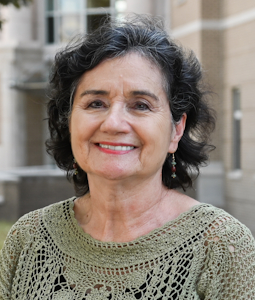
Myriam Torres
MSPH (1991) and Ph.D. (2001) in Epidemiology

Ashley Vertuno
Master of Health Administration, 2012
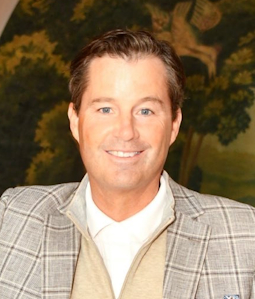
Gary Cooper
Master of Health Administration, 1996
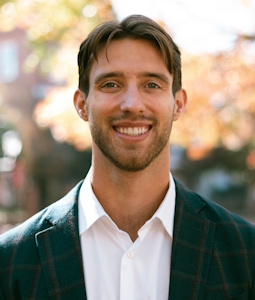
Jay Urich
B.A. in Public Health, 2020
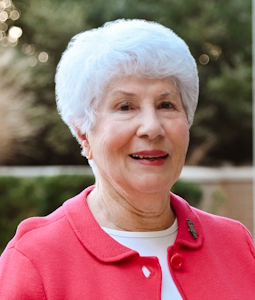
Lill Mood
Master of Public Health, 1976
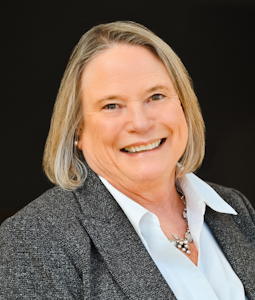
Mary Ann Galloway
Master of Public Health, 1975

Megan Weis
MPH (2002) and DrPH (2012) in Health Promotion, Education, and Behavior
Studying exercise science as an undergrad at Furman University sparked Megan Weis’s interest in public health but it was her time as a Peace Corps Child Survival Officer in Malawi that helped her see the field as her lifelong vocation. With experience in maternal and child health, immunization clinics, AIDS/HIV, and community public health projects, Weis returned to South Carolina and enrolled in the Arnold School’s Master of Public Health (MPH) in Health Promotion, Education, and Behavior (HPEB) program.
A graduate assistantship with the SC Department of Public Health’s (then known as DHEC) Division of Injury Prevention turned into a full-time position as the data manager for the Pregnancy and Risk Assessment Monitoring System, and she stayed with the state agency for a few years – returning to work with injury and violence prevention during that time. In 2007, she helped co-found the SC Institute of Medicine and Public Health where she spent 12 years in various leadership roles and completed her Doctor of Public Health (DrPH) in HPEB. Since 2020, Weis has been a Research Assistant Professor in the USC School of Medicine Columbia and a member of the South Carolina Center for Rural and Primary Healthcare – first as the Director of Connecting Communities and more recently transitioning to the Director of Policy and Engagement.
“It’s almost hard to describe how I use my degrees because the skills I developed are integrated into everything I do, including systems thinking and data-driven decision-making to meeting people where they are,” Weis says. “The Arnold School provided a toolkit that continues to guide my approach to policy, problem-solving, and meaningful engagement in my work.”
Over the years, Weis has held numerous leadership positions in her field, including president for the SC Public Health Association (SCPHA), and has been recognized with many awards. She is the recipient of the Health Education Professional of the Year (SC Association for the Advancement of Health Education, 2007), the President’s Award (SCPHA, 2010), Lucinda Thomas Award for Outstanding Contributions in Community Health (SCPHA, 2013), Michael D. Jarrett Excellence in Customer Service Award (2007, 2017), Voice of Public Health Award & James A. Hayne Award (SCPHA, 2019), and the Gerry Sue Arnold Alumni Award (2021). Weis is also a National Rural Health Association Health Policy Fellow (2024) and Furman University Riley Institute Diversity Fellow (2022).
“Take full advantage of the Arnold School’s deep connections with the research and public health community in South Carolina and beyond,” she tells current and future students. “Those built relationships and experiential learning opportunities not only enrich your learning, but also open doors to pathways you may not have imagined yet. Building and maintaining those connections will shape your growth long after graduation.”


Ebru Cayir Burke
Ph.D. in Health Promotion, Education and Behavior, 2017
Trained as a physician in her native Turkey, Ebru Cayir Burke first encountered the Arnold School when she was looking at Ph.D. programs in the U.S. The Fulbright Scholar connected with health promotion, education, and behavior (HPEB) faculty Deborah Billings and Jim Thrasher, who helped her imagine the possible paths she could take during her doctoral journey.
“A transforming experience of my time as an HPEB student was the opportunity to explore the intersections of public health, other social sciences and women’s and gender studies,” Cayir Burke says. “My previous training as a medical doctor focused heavily on the ‘hard sciences,’ and I always craved to learn in-depth about the social influences on population health.”
Cayir Burke was immersed in the sociology and philosophy of the structures that shape health as well the critical perspectives offered by feminist theory and intersectional frameworks. These experiences continue to inspire her scholarship and how she approaches mutual and experiential learning in the classroom.
After graduating in 2017, Cayir Burke began a postdoctoral position with the Compassionate Care Initiative at the University of Virginia’s School of Nursing where the research team collaborated to create workplaces that promote resilience, job satisfaction and meaning at work among health care providers. She returned to Turkey to serve as public health faculty member at Yeditepe University’s School of Medicine before accepting her current role as an assistant professor at Towson University in 2023. Cayir Burke uses her Arnold School degree every day to train future health professionals and conduct research aimed at improving workplace well-being and equity for helping professionals.
“Earning a doctoral degree is an intense, laborious process, and it’s easy to forget about the bigger picture and the potential influence we can make as public health researchers, advocates and practitioners when we get hyper-focused on grades,” she reminds current and future students. “One thing that helped me remember this was the connections I made within the community during my dissertation research. I realized how researching ways in which non-profit organizations that address gender-based violence can support their staff members (advocates) better had very real, practical implications in the work lives of those advocates. Viewing the communities that allow you in to work with and for them under this light, and building genuine relationships with them is very humbling and helpful while you keep growing as an independent scholar.”


Adam Mayer
B.S. in Exercise Science, 2015
Originally from a small town in Wisconsin, Adam Mayer was drawn to the much-warmer South when choosing a college. Although a large, Division 1 university seemed too big at first [graduating Riverdale High School with a class of 60 students], he changed his mind after receiving his acceptance letter and decided to immerse himself in all that the flagship university had to offer – Student Government, Service Saturdays, Carolina Productions, USC Connect, Greek Life, New Student Orientation and even the Sky Diving Club.
A true leader and contributor to the campus community he loved so much, Mayer’s undergraduate tenure was filled with honors. He was recognized by his fraternity, Sigma Phi Epsilon, with the Balanced Man Award, inducted into the USC Hall of Leaders, and named to the Who’s Who Among Students in American Universities and College. During his junior year, Mayer received USC’s Thomas Moore-Craig Leadership Award. And by the time he graduated in 2015, the exercise science major was one of just three students to receive USC’s highest undergraduate honor, the Algernon Sydney Sullivan Award, and also the Arnold School Exercise Science Department’s Outstanding Student Award.
Mayer went on to complete a Master of Health Administration at the Medical University of South Carolina and was quickly hired out after one year in the program within MUSC Health. At the age of 23, Mayer became the youngest business director for MUSC Health’s Acute, Critical and Trauma Integrated Center of Clinical Excellence (ACT ICCE) and it’s Musculoskeletal Institute.
Mayer continued to advance his career by moving to Colorado to serve as the inaugural Orthopedic service line administrator with Colorado West Healthcare System before returning to MUSC Health in 2020 and quickly rose through the ranks. Today, Mayer is the Associate System Chief Financial Officer at MUSC Health and Chief Financial Officer for its community physician practice – overseeing the financial operations for the roughly $8 billion [operating revenue] enterprise.
Known for his effective communication, strategic management of resources, and continuously exceeding expectations, Mayer was named in Beckers: “104 Healthcare Leaders to Know” in 2023, was featured in a 2025 American Healthcare Leader magazine, graduated as one of 14 health care leaders in the Class of 2025 Health Management Academy GE Finance Fellows, and was recognized in the inaugural Gamecock35 2025 Class – a select cohort of outstanding USC alumni under the age of 35 who embody the spirit of Carolina and are making meaningful impacts in their fields.
Mayer says the best part about being a Gamecock student was how much faculty and staff – especially advisors – truly cared about students, academically and personally. He also appreciated the unlimited opportunities for leadership to step outside your comfort zone. Without the ample opportunities for involvement, Mayer feels his career would not have accelerated to the position he is in today.
“I encourage all students, from upperclassmen to incoming freshman, to take advantage of everything the University of South Carolina has to offer,” Mayer says. “Whether that is involvement with student organizations, participating in club/intramural sports, studying abroad, or joining a research team/internship, immerse yourself with the endless opportunities as a student. Every experience helps you learn something new and aides in your professional development. Not only will you grow as an early careerist, but it will make your college experience more fun while gaining life-long friendships in the process.”


Jessica Seel
MPH in Health Promotion, Education, and Behavior, 2016
A lifelong Gamecock, having a USC diploma on her wall had always been a goal for Jessica Seel. She seized the opportunity after first gaining some experience in the health care field followed by a bachelor’s degree in social work at Columbia College.
“There was never a question of where I belonged,” Seel says of her graduate school selection. “The Arnold School was the only place that aligned with both my heart and my purpose. My experience there felt like discovering a family I never knew I had.”
During her Master of Public Health (MPH) program in the Department of Health Promotion, Education, and Behavior, Seel remembers that support was always available, the opportunities were transformative, and the sense of belonging was undeniable. She calls her enrollment one of the best decisions of her life.
After graduating in 2016, Seel joined the South Carolina Prevention and Control Research Network as the program director. Two years later, she transitioned to the South Carolina Office of Rural Health, where she oversaw workforce development and later added behavioral health initiatives to her director responsibilities. After the new year, Seel will lead the SC Public Health Association as executive director while also expanding her public health consulting services.
“I have used my MPH to develop and lead innovative behavioral health and workforce initiatives across South Carolina, shaping programs that strengthen communities, improve access to care, and support those most impacted by behavioral health challenges,” Seel says. “My training at the Arnold School gave me the foundation to design data-driven strategies, build multi-sector coalitions, and advocate for systems-level change. Every day, I apply that degree to create healthier, more resilient communities across the state.”
Earlier this year, Seel was recognized for this work with the Rick Foster Leadership Award from the Alliance for a Healthier SC. She also serves as President of the board of directors for the National Rural Recruitment and Retention Network.
“My best advice is to be engaged and take advantage of as many opportunities as you’re provided,” Seel tells current and prospective students. “Every class, connection, project, and conversation has the potential to open a door you didn’t even know existed. Say yes often, stay curious, and allow yourself to grow into the professional you’re meant to become.”


Jean Marie Place
MPH (2009) and Ph.D. (2013) in Health Promotion, Education, and Behavior
Originally from Utah, Jean Marie Place studied anthropology as an undergraduate student before following in her sister’s footsteps to attend graduate school at USC. While her sister studied epidemiology, Place went for a dual degree, earning a Master of Public Health in Health Promotion, Education, and Behavior (HPEB) and Master of Social Work, before moving into HPEB’s Ph.D. program and completing a Certificate of Graduate Study in Women’s and Gender Studies in parallel.
“During my time at the Arnold School, I was surrounded by faculty who genuinely cared about my progress,” Place says. “I remember specifically Dr. Edward Frongillo and Dr. Deborah Billings, who took me under their wing and encouraged me to travel to Mexico during the summers to gain experience doing applied public health research.”
Place credits Billings for her opportunity to gain experience at Mexico’s National Institute of Public Health as a research assistant, co-author peer-reviewed articles on maternal and child health topics, and lead her own research on postpartum depression among Mexican women. Place also worked closely with Epidemiology Distinguished Professor Emeritus Robert McKeown on a CDC-funded study about ADHD in children.
“The faculty truly cared about me, and they continue to care about me and check in on me as I continue my career,” she says. “They have helped me time and time again.”
After completing her doctoral degree, Place accepted a tenure-track position at Ball State University as an Assistant Professor of Nutrition and Health Science. Over the years, she moved up the ranks to become a full Professor of Health Science. Meanwhile, she has continued with her international research, consulting with World Bank, UNICEF, Save the Children, and Inter-American Development Bank. In 2024, Place was selected as a Fulbright Specialist at the Perinatal Mental Health Project through the University of Cape Town, South Africa.
“I tell my undergraduate public health students that this career is important because we can influence health trajectories, we use a social justice lens, and we work to reduce health disparities,” she says. “I recommend learning another language to be able to serve globally and to get curious about why there are injustices in this world, why people are disadvantaged, and our role in helping to address inequities.”


Myra Reece
MPH in Environmental Health Sciences, 1993
Myra Reece already had several years of lab and leadership experience with the Medical College of Georgia and the South Carolina Department of Health and Environmental Control (DHEC) when she began her master’s program at the Arnold School. She was serving as the air quality manager for the Aiken office when one of her EPA collaborators encouraged her to apply for a federal fellowship program, which provided tuition assistance for a master’s degree.
“I thought, ‘how lucky am I to be part of this EPA fellowship program, and we have one of the premier schools of public health right here in Columbia,’” she says.
Reece traveled back and forth to Columbia for her Master of Public Health in Environmental Health Sciences coursework while continuing to climb the ranks at DHEC – first to Division Director for Aiken in 1991, then to Bureau of Air Quality Chief at the headquarters in Columbia in 2004, and finally to Director of Environmental Affairs in 2016. In 2024, DHEC split into two agencies, and Reece was officially named the director for the Department of Environmental Services in 2025.
Reece says that she uses her graduate degree every day – applying course concepts and critical thinking to solve the every day challenges faced by communities in South Carolina. It has helped her see the synergy between various programs from multiple perspectives and approach public health and environmental concerns from a holistic perspective.
“Experience on the frontlines and working with communities and regulated entities have prepared me for this role,” Reece says. “The polish on that experience was my attendance at the Arnold School and the graduate degree I received.”
More than three decades after her graduation from USC, Reece sees this key partnership between the Department of Environmental Services and the state’s only accredited school of public health as continuing to grow. Whether its faculty serving on advisory committees, students gaining hands-on experience as interns, or alumni joining the state agency, each entity relies on the other.
“I know they feel like us alumni are still part of the school of public health family,” Reece says. “We work hard every day to make the school proud and make our communities feel confident that there are dedicated professionals in the state who are making a difference in their lives.”


Christy Kollath-Cattano
Graduate Certificate in Public Health, 2010
Christy Kollath-Cattano may have four degrees from the McCausland College of Arts and Sciences (B.A., MA., Ph.D. in Anthropology; Graduate Certificate in Women’s and Gender Studies), but her ties to the Arnold School also run deep. Today, she’s an associate professor of public health and department chair at the College of Charleston where she’s working to prepare even more students to join South Carolina’s public health workforce.
“I was drawn to the Arnold School by the breadth and diversity of its faculty research and expertise,” Kollath-Cattano says. “I was particularly impressed by the global health research efforts, which resonated with my background in anthropology, in addition to the scope of community health initiatives that benefited populations across South Carolina.”
Looking back, Kollath-Cattano values the special topics offered through her certificate program and the opportunity to collaborate with students, faculty, and staff from diverse backgrounds. To explore public health even further, she joined health promotion, education, and behavior professor Jim Thrasher’s global tobacco control research program as a Postdoctoral Research Associate/Project Manager for three years before accepting a position as an assistant professor of health and human performance at the College of Charleston in 2015.
Since 2019, Kollath-Cattano has overseen the college’s undergraduate public health programs and is working towards program accreditation, which will be completed in Spring 2026. Also in 2025, she took on the chair role for the Department of Public Health Sciences and Administration.
“I rely heavily on the expertise I developed during my graduate and postdoctoral training,” Kollath-Cattano says. “My teaching is strongly shaped by the faculty and coursework from my graduate studies, and I routinely incorporate adapted activities, examples, and approaches drawn from those experiences.”
Her research program, which examines substance use prevention and treatment, also built on her time at the Arnold School. She says that the most meaningful application of her degrees may be her mentorship of undergraduate students and encouraging them to continue their studies at the Arnold School.
“Take full advantage of the opportunities available to you, particularly experiential ones such as assisting with faculty research, participating in community projects, or completing internships with public health organizations,” Kollath-Cattano says. “Cultivate relationships with a diverse range of faculty members, who can provide academic and career guidance and potentially connect you with research and professional opportunities—these relationships are an essential part of building a strong network. Additionally, engage with fellow students who share your interests and come from similar and different cultural backgrounds, as these interactions can broaden your perspectives and enhance your understanding of public health issues.”


Leanna Ross
M.S. (2013) and Ph.D. (2017) in Exercise Science
Leanna Ross was drawn to the exercise science department’s welcoming environment and strong academic culture before she knew about its top rankings. A faculty member at another school even encouraged her to attend USC – telling her she shouldn’t miss the opportunity to study at the Arnold School.
“I could not have imagined how pivotal my choice would be,” says Ross, who remembers the people the most. “From peers to faculty, everyone shaped my career and left a lasting personal impact. My primary mentors – Drs. Steven Blair, Larry Durstine, and Mark Sarzynski – were my dream team, supporting both my academic growth and overall well-being.”
After graduating with two degrees in exercise science – an M.S. in 2013 and a Ph.D. in 2017 – Ross began a postdoctoral fellowship with Duke University School of Medicine. By the following year, she had secured a T32 Ruth L. Kirschstein National Research Service Award from the National Heart, Lung, and Blood Institute. In 2023, Ross joined Duke’s faculty ranks as a Medical Instructor and received a Career Development Award from the American Heart Association. She received a second career award – this time from Duke – in 2024 and was promoted to assistant professor.
“My training in the Arnold School’s internationally recognized exercise science program provided the foundation for a career centered on research, education, and service,” Ross says. “I study how exercise amount, intensity, and mode produce short- and long-term cardiometabolic benefits, with the goal of advancing precision exercise medicine. My work blends exercise physiology with physical activity epidemiology – directly reflecting the knowledge, skills, and research experiences I gained as a master’s and doctoral student. My graduate training and mentorship also prepared me for one of the most fulfilling aspects of my career: mentoring students.”
Though still in the early stage of her career, Ross has been elected as a Fellow into the American Heart Association and the American College of Sports Medicine. She is also a recipient of the National Institutes of Health’s Clinical Research Loan Repayment Program Award.
“Take initiative in building relationships with faculty and keep an open mind to where opportunities may lead,” Ross advises other students. “I found an important mentor in Dr. Blair when I joined him as a graduate research assistant, and his belief in my potential as a scientist was an answered prayer and continues to shape my life. I am forever grateful.”


Dom Francis
B.S. in Exercise Science (2016) & MPH in HSPM (2017)
Dom Francis’ interest in human physiology brought him to the Arnold School, but he stayed for the population-level impact. He was studying exercise science as an undergraduate when one of his professors challenged the class to look past personal fitness and consider how they could truly impact our community’s well-being through systems and policy-level thinking. It was a pivotal moment and resulted in his pursuit of a Master of Public Health in Health Services Policy and Management.
“What I carry most from the Arnold School is the understanding that health is inextricably linked to every facet of life – whether it’s city planning, social interactions, or access to nutrition, everything affects the body,” Francis says. “I came to accept that public health is all-encompassing and demands a holistic, comprehensive effort to truly make a difference.”
With a foundation in the social drivers of health from his coursework, graduate assistantship, and evaluation role at Eat Smart, Move More SC during his master’s program, Francis’ first position after his 2017 graduation was as a Workforce Development Manager with the South Carolina Department of Health and Environmental Control (renamed the Department of Public Health in 2024). He then returned to the Arnold School to oversee training for the newly established Center for Community Health Alignment. Since then, Francis has served as executive minister for Midtown Fellowship and Director of Programs for SC Counts. Earlier this year, he accepted a position with the SC Hospital Association as the Manager for Community Health and Social Drivers of Health.
“My current role involves addressing the social drivers of health by applying public health principles to facilitate dialogue and consensus among diverse interest holders, supporting community efforts for systematic change,” Francis says. “Over the course of my career, my work has involved translating health services and management knowledge into collaborative, community-level efforts that aim to strengthen the public health workforce and promote health for all.”
He often shares this three-step advice when speaking with students: 1. Make a plan 2. Try your best to execute it 3. Accept that the plan might change.


Fei Ye
MSPH (2004) & Ph.D. (2007) in Biostatistics
“I chose the Arnold School for its blend of methodological rigor and real-world impact,” says Fei Ye, who completed a Master of Science in Public Health and a Ph.D. in the Department of Epidemiology and Biostatistics. “The biostatistics program paired small-cohort mentoring and close collaboration with epidemiology as well as the Cancer Prevention and Control Program with a robust, well-sequenced curriculum taught by its excellent, student-focused faculty – that’s just exactly the environment I wanted.”
During her five years at the Arnold School, Ye most remembers the inspiring mentors – one of whom once juggled stuffed animals to bring statistical concepts to life. She recalls the collaborative culture where classmates helped each other master tough material in the computer lab.
“There was a steady emphasis on result interpretations and effective communication,” Ye says. “Above all, the program taught me to frame problems well, plan thoughtfully, and produce reproducible and actionable results.”
After graduating, Ye joined the Department of Biostatistics at Vanderbilt University Medical Center – climbing the ranks to full professor and Vice Chair of Collaborative Studies. After 17 years, she made the move to the University of Miami Miller School of Medicine’s Department of Public Health Sciences, where she joined the Division of Biostatistics and Bioinformatics as a Professor of Public Health Sciences earlier this year. She also serves as the Executive Director for Quantitative Sciences and Assistant Director for Statistics – both at the Sylvester Comprehensive Cancer Center.
Ye says she uses her Arnold School training every day as both a toolkit and compass. Her degrees enable her to design and analyze clinical trials and observational studies, unite clinicians and scientists around shared questions, and maintain a focus on the patients and communities they serve.
“This education provided more than methods, it shaped the way I think, ask meaningful questions, and communicate effectively,” says Ye, who has developed early-phase trial strategies, built and validated predictive models, integrated genomic data to identify biomarkers, and, most importantly, translated findings into actionable decisions that improve patient outcomes. “It informs everything from crafting analysis plans, data and safety monitoring guidelines, and IRB documents to writing grants and mentoring trainees.”
Her advice to current and future students? Begin with the question, not the method.
“What helped me most wasn’t a tool but a rhythm: start with curiosity, ask what decision the analysis should inform, and let that guide the plan,” Ye says. “Seek mentors, collaborators, and projects outside your comfort zone. Say yes to projects that stretch you across populations and problems – that breadth of experience will teach you more than any class.”
Ye has been Assistant Editor for Statistics at JAMA Oncology since 2020 and was elected a Fellow of the American Statistical Association in 2024. She has published more than 200 peer-reviewed publications.


Allissa Desloge
B.A. in Public Health, 2017
“The University of South Carolina as a whole captured my heart when I visited for the first time,” says Allissa Desloge, an assistant professor of community health at the University of North Carolina at Charlotte.
Desloge can still remember the B.A. in Public Health information sessions, her excitement over the course options, and the Arnold School’s connection to the community. She loved listening to speakers from the SC Department of Public Health, Department of Transportation, and the CDC.
Nearly a decade later, she can still recall class projects, such as the community walkability survey she conducted as part of health promotion, education, and behavior associate professor Andrew Kaczynski’s built environment course and the influential mentorship she received from advisors like Christine Palmer.
“My undergraduate education set the foundation to ensure my success, and pursuing my bachelor’s degree ignited my passion for public health and for school – so I just kept going!” says Desloge, who went on to complete an MPH in Health Policy (Yale University) and a Ph.D. in Community Health Sciences (University of Illinois Chicago), with a Fox International Fellowship at the Nossal Institute of Global Health in Melbourne, Australia in between. “The Arnold School provided me with essential knowledge to feel prepared for graduate school, but also provided me with necessary skills in teamwork, research and writing reports.”
In 2024, Desloge joined UNC Charlotte’s College of Health and Human Services as an assistant professor. She loves working with public health students and hopes to impact them the way the Arnold School faculty impacted her.
Desloge recommends that current and future students get involved in public health outside the classroom, like she did at USC. Serving as a Changing Carolina Peer Leader at the student health center and volunteering with local food banks and the Women’s Rights and Empowerment Network were just a few of her activities. She also sought research opportunities with faculty.
“Public Health is so interdisciplinary, and while I had amazing mentorship from faculty at the Arnold School, I also had mentors in political science and psychology,” Desloge says. “Put yourself out there, try new things, and keep an open mind. You never know what experiences in or out of the classroom are going to peak your interests and inform your passions.”


Harry Cintineo
Ph.D. in Exercise Science, 2022
Harry Cintineo was drawn to the Ph.D. in Exercise Science program due to its top ranking among the nation’s best and its home in a school of public health. He also saw an opportunity to advance his research into human performance, specifically strength and conditioning and sports nutrition, under the guidance of professor and chair Shawn Arent.
“I remember long days in the fast-paced lab environment, which provided me with ample research experience and exposure to data collection techniques I wouldn’t have otherwise learned,” Cintineo says. “I also remember attending the weekly department seminars, which helped me step back from the narrow focus of my work to gain a greater understanding of exercise science and public health and figure out how my area fits in this larger picture.”
After graduating in 2022, Cintineo spent three years as an assistant professor at Lindenwood University. Just a few months ago he began a Human Performance Optimization Fellowship with the U.S. Air Force Academy in Colorado Springs.
Cintineo says he has used his Arnold School degree every day of his career – conducting research, teaching classes, and mentoring students at all levels. Currently, he draws on his doctoral studies to help cadets optimize their performance through improved physical training, physical education curriculum, and other human performance-related initiatives.
“Prioritize exercise, nutrition, and sleep,” Cintineo advises other students. “Keeping your body healthy, feeling good, and performing well will allow you to excel in the lab and classroom and maximize productivity in your work.”


Jeff Woods
Ph.D. in Exercise Science, 1992
“The most important thing I remember were the friendships I made with fellow graduate students, including my wife, Amy,” says Jeff Woods, a Ph.D. in Exercise Science alumnus. “She was a doctoral student a year ahead of me. I also remember the hard work of science, the long hours, and noon runs in the unrelenting heat with a few brave graduate student colleagues.”
Woods was already committed to exercise science before he came to USC, as evidenced by his bachelor’s (University of Massachusetts Amherst) and master’s (Springfield College) degrees in the field. The Arnold School (though not named until 2000) caught his attention due to its high ratings and the presence of renowned exercise science professor Russell Pate.
“My doctoral program instilled my work ethic and determination, which are a must for scientists,” Woods says. “I used these traits to fuel a successful academic career at the University of Illinois at Urbana-Champaign where I have been on faculty since 1994.”
Following a postdoctoral fellowship in neuroimmunology at the Minneapolis Medical Research Foundation, Woods indeed joined the Department of Kinesiology as an assistant professor in 1994. He rose the ranks to achieve tenure in 2008, was directing the Center on Health, Aging and Disability by 2014, and was named the associate dean for research of the College for Applied Health Sciences in 2016. In 2017, Woods joined the Carle-Illinois College of Medicine as an inaugural faculty member, and he was named a Mottier Family Professor in 2019.
Woods remained continuously funded throughout his research career as he shifted into administrative roles – always making time to mentor doctoral and postdoctoral students. His contributions have been recognized with New Investigator Awards from the American College of Sports Medicine and the Psychoneuroimmunology Research Society. He’s led the International Society for Exercise Immunology and the PsychoNeuroImmunology Research Society as president and has published 140 peer-reviewed publications.
“Find a topical area that interests you and go all in,” Woods advises current and future students. “Ask questions of mentors and fellow students. Seek trusted advice. Utilize the resources available to you. Don’t be shy.”


Romel Lacson
MPH in Health Behavior and Evaluation (1996)
Romel Lacson has three degrees from USC. He returned for his Master of Public Health in Health Behavior and Evaluation after two years as a Peace Corps volunteer in Ecuador.
Lacson was feeling anxious about his next steps when he decided to meet with a professor who shared his Filipino heritage, Francisco Sy, who had been a guest lecturer in one of his public health undergraduate courses. One thing led to another and Lacson ended up in the MPH program and working with Murray Vincent on reducing teen pregnancy in rural South Carolina.
“Those were two extraordinary years where the clash of students, faculty and experiences became more than the sum of its parts,” Lacson says. “Many individuals with global health experience and interest descended into Columbia, SC in 1994. I remember the comradery, the ease in approaching faculty about our interests and their interest in our experiences abroad.”
After graduation, Lacson spent six years working with the CDC as a behavioral scientist in the Division of HIV Prevention before resigning after his wife, Claudia (also an Arnold School alum), passed away due to tuberculosis (TB) meningitis. Inspired by her life and loss, Lacson founded a community-based health initiative, TB Photovoice, in her honor. With support from two other Arnold School alumni, he spent four years documenting the journeys of individuals affected by TB.
“I remember returning to the Arnold School of Public Health to the open arms of Dean Donna Richter,” Lacson says. “She made me feel at home.”
Then once again, he was connected with someone who would mark an important turn in his journey. David Simmons had a dual appointment in public health and anthropology, and his work with Paul Farmer in Haiti led Lacson to pursue a Ph.D. in Anthropology. Meanwhile, he returned to the CDC – first working on TB elimination, followed by HIV prevention and Ebola Response and then returning to both TB and HIV at the global level. By 2015, Lacson had risen to Associate Director for HIV Program’s Care, Treatment and Prevention Services and Chief of the HIV Prevention in the US CDC Country Offices in Vietnam and South Africa respective. For the past three years, he served as the first US CDC Country Director of the Philippines focused on the rapid rise of HIV infections, high prevalence of TB and global health security efforts to protect Filipinos and Americans from disease outbreaks.
Lacson’s three decades of experience means he has a vast amount of wisdom to share: “Set goals and not just dreams. Read and experience and read again. Engage in critical analysis of public health paradigms and programs that are evidence-based. Always acknowledge the public health giants whose shoulders we are standing on. Be humble and be a mentor.”


Sara Goldsby
MPH in Health Services Policy and Management, 2015
“I saw the curriculum and content of study for the Master of Public Health in Health Services Policy and Management program and knew it was exactly what I wanted to learn to build my skillset for social work and public service,” says Sara Goldsby, who was already enrolled in USC’s Master of Social Work program when she decided to pursue the combination degree option.
After graduating in 2015, Goldsby joined South Carolina’s Department of Alcohol and Other Drug Abuse Services as a project manager and moved into the director role just one year later. Earlier in 2025, her title changed along with the organization’s renaming to the Office Director for the Department of Behavioral Health and Developmental Disabilities’ Office of Substance Use Services. She also co-directs the SC Center of Excellence in Addiction along with HSPM associate professor Christina Andrews.
“I continue to use all of the foundational knowledge and competencies from the program in my work in administration of government health services,” Goldsby says. “From health systems science, to policy, to interprofessional practice, I apply what I learned at the Arnold School in my work daily.”
That daily work has involved implementing numerous prevention, intervention, treatment and recovery strategies statewide and has resulted in multiple recognitions. In 2019, Goldsby was the recipient of the national Ramstad/Kennedy Award for her leadership and support of recovery programming. She currently serves as President of the National Association of State Alcohol and Drug Agency Directors.
“Engage in every opportunity that you can to explore what is currently happening in the field,” Goldsby advises current and future students. “And stay open to unexpected possibilities that may draw you in. Curiosity, showing up, and networking will usually lead you on a fulfilling and natural career path.”


Elise Matthews
B.S. (2004) and M.S. (2006) in Exercise Science
A four-sport athlete in high school, Elise Matthews came to USC to play soccer and jumped at the chance to major in exercise science as bachelor’s student.
“The idea that I could not only do what I loved but also learn more about the science behind it seemed too good to be true,” says Matthews, who was awed at being taught by professors who were at the top of the field. “I remember being dumbstruck when I saw Dr. Mark Davis’s research cited in a book on sports performance nutrition I was reading (for fun) and thinking how lucky I was to be able to sit in his lectures.”
When her plan to play professional soccer fell apart following the league shutdown, Matthews decided to pursue a master’s degree with the department. She ended up working as a graduate research assistant with Davis on a Gatorade Sports Science grant – performing the same kind research she had read about as an undergrad. Matthews also began providing personal training services and discovered a passion for helping people learn how to move better and get stronger.
She spent the next three years gaining experience and amassing a range of certifications related to strength training before opening KORE Wellness in 2009. Matthews says she uses her Arnold School degrees every day in her functional fitness facility, which specializes in addressing postural and movement dysfunction to reduce/eliminate chronic pain issues. In 2020, she joined her alma mater as an adjunct professor, and, in 2020, she began volunteering as a strength coach for college softball programs.
“USC gives you a great foundation for a career in the public health arena,” Matthews says. “The more you can dive deep and understand the core concepts of what your professors are teaching you, the stronger your foundation will be. Once you find your passion, go out into the community and find ways to volunteer with the people in the career you are headed for. Use their experiences and applications to support the foundational learning you are getting in the school of public health.”


Edward "Ty" Collier
B.S. in Exercise Science (2008) & Doctor of Physical Therapy (2011)
“As a South Carolina native, I wanted to train at an institution deeply connected to the health needs of our state while also offering opportunities to engage with national and global health care conversations,” says Edward “Ty” Collier. “I chose the Arnold School of Public Health because of its reputation for producing innovative, service-driven health care leaders and its commitment to improving health outcomes across communities.”
Collier completed three degrees at USC over a 10-year period – first a B.S. in Exercise Science (2008) and Doctor of Physical Therapy (2011) and later returning to earn his MBA (2017). He remembers his Arnold School years as marked by collaboration and mentorship – stating that the faculty were invested in his academic and professional growth, encouraging him to think beyond the clinic and into systems-level change.
“The relationships I built – with peers, professors, and community partners – continue to influence how I lead, innovate, and serve today,” he adds. “My degrees laid the clinical and analytical foundation for a career that bridges direct patient care with strategic health care leadership.”
After graduating in 2011, Collier joined Prisma Health as a physical therapist – gaining clinical experience and moving into higher-level administrative roles. In 2019, he founded the state’s first Emergency Department Physical Therapy program. In addition, he founded Novus Healthworks LLC, which uses coaching and training to build the capacity of hospitals and other emergency services in order to improve patient flow and satisfaction while reducing unnecessary hospital utilization. Since 2021, he has led multidisciplinary teams at Encompass Health as the Director of Therapy Operations.
“I use my training to influence health policy, serve as an educator and mentor, and champion diversity, equity, and inclusion in health care leadership,” says Collier, who is the recipient of the 2018 Man of Impact Award (Prisma Health), 2019 Emily Cate Award for Outstanding Achievement (American Physical Therapy Association of South Carolina), 2023 Alumni Award for Excellence in DEI in Practice (Arnold School) and the 2023 President’s Circle Award (Encompass Health).
His advice for future students can be captured in succinct phrases that also serve as calls to action: Be curious and bold; Invest in relationships; Pursue leadership early; Stay Connected the community; Never stop learning.


Meredith Arnau
B.S. in Exercise Science, 1990
Meredith Arnau began her undergraduate studies at USC as a chemistry major. Things changed when she was injured playing intramural flag football. A conversation with the physical therapist treating Arnau’s injury led her to become interested in the profession.
She changed majors to join the Arnold School’s B.S. in Exercise Science program – graduating in 1990. Arnau believes this foundation was terrific preparation for physical therapy school, which she attended at Boston University. She was particularly grateful for the rigorous anatomy and physiology undergraduate course, which perfectly prepared her for gross anatomy during her master’s program.
“Also, the practicum requirement not only solidified my desire to be a physical therapist but gave me insight into what my future clinical rotations would be like as well,” Arnau recalls.
After graduation, she returned to South Carolina, where she became a Neurodevelopmental Treatment Specialist and worked at the Columbia Rehabilitation Clinic as the supervisor for the pediatric department. She took a leadership role at Leaps & Bounds Pediatric Therapy in 2005 and has been there ever since.
Along the way, Arnau began an adjunct faculty member with the Arnold School’s Doctor of Physical Therapy and exercise science programs, a clinical certified instructor with the American Physical Therapy Association, and a CPR instructor for the Red Cross. Since 2010, she has been Board Certified in Pediatrics.
“Be flexible in your timeline,” Arnau advises students interest in becoming physical therapists. “Physical therapy programs are inundated with applicants, so it can take a couple of attempts to be accepted. Try to be as well-rounded as possible, and keep an open mind about different specialties available in the health care field. Nothing is undoable, so try not to over-think things. When I started in physical therapy school, I thought I wanted to work with athletes. I’ve been a pediatric specialist now for 33 years, so I obviously did a big pivot!”


Juliet Stoute-White
Ph.D. in Communication Sciences and Disorders, 2003
“Choosing the Arnold School turned out to be one of the best decisions I’ve ever made,” says Juliet Stoute-White, a graduate of the Ph.D. in Communication Sciences and Disorders program. “What I remember most is the strong mentorship and unwavering support I received from both the faculty and my doctoral cohort.”
Stoute-White particularly recalls the profound influence of faculty members Tina Thompson-Smith and Hiram McDade, saying they both played pivotal roles in her success throughout the program and have continued to shape her professional journey.
Early in her career, Stoute-White gained clinical experience working with adults, children and families. This foundation led to leadership roles within multiple school districts in the state.
“My work has allowed me to witness the power of communication to unlock learning and connection,” Stoute-White says. “I’ve overseen special education, student services, curriculum, and instruction and remain deeply committed to advocating for students with disabilities by promoting equitable access, improving outcomes, and ensuring compliance.”
As an administrator, Stoute-White has led professional development initiatives, built support systems, and expanded programming for diverse learners. She currently serves as the Student Services Officer for Beaufort County School District and also mentors future speech-language pathologists as a clinical educator with SC State University and Brescia University – helping these students bridge theory and practice.
“My career reflects a deep commitment to educational equity, inclusion, and empowering all students to succeed,” Stoute-White says.
Her work has been recognized by her selection as president for both the South Carolina Speech-Language and Hearing Association and the South Carolina Council of Administrators of Special Education. In 2013, she received ASHA’s Frank R. Kleffner Clinical Career Award, a lifetime achievement recognition for excellence in clinical practice.
For those pursuing their own fulfilling careers, she has advice.
“Know your ‘why,’ stay true to yourself, and trust the path – even when it shifts unexpectedly,” Stoute-White says. “Your degree will open doors, but your passion, integrity, and resilience will define your journey. Careers evolve, often in ways you can’t predict. Be open to growth, even when it means stepping into the unknown. Embrace change with courage and confidence, knowing that every new opportunity is a chance to learn, lead, and make an impact. Stay grounded in your purpose and never underestimate the power of your voice or the value you bring to the table.”


Brandon Vaughn
Doctor of Physical Therapy, 2010
“I was born in Columbia, raised in Columbia, and I’m going to die in Columbia,” says Brandon Vaughn, a 2010 graduate of the Doctor of Physical Therapy program. “I wanted to stay here, build something here, and be part of this community long term. The Arnold School gave me that chance and helped me plant deep roots in the place that matters most to me.”
Vaughn was so committed to building his career and family in the Columbia area that he only applied to USC for physical therapy school as he was wrapping up his exercise science degree at The Citadel. “I knew what I wanted,” he says.
The decision did not disappoint, and Vaughn connected with the faculty and staff as well as his close-knit cohort of 18 students. “That kind of mentorship shaped me not just as a student, but as a clinician, business owner, and now CEO,” he says. “I still feel the impact of that experience in the way I lead and treat today.”
After working as a physical therapist in an outpatient orthopaedics clinic for a few years, Vaughn launched his own solo practice and earned board certification as an orthopaedic clinical specialist. In 2016, he founded Vertex Physical Therapy Specialists.
With three locations (Irmo, Cayce, Downtown Columbia) and a home health branch, Vertex provides personalized, one-on-one care. Today, Vaughn serves as CEO for the growing organization, which he co-owns with fellow Arnold School DPT alumnus Josh Jeffery.
“The education I got at USC prepared me to treat a wide range of patients, but more importantly, it gave me the confidence to lead,” Vaughn says. “This business has become a reflection of who I am and the values I care about most. It’s the product of years of hard work, and I’m proud of what we’ve built.”
For the past 15 years, Vaughn has served as a clinical instructor for dozens of DPT students at USC and continues to teach part time in the program. “It’s been a privilege to help mold the next generation of physical therapists coming out of the same program that shaped me,” he says.
For those considering a similar path, Vaughn encourages them to go for it. Specialize. Open your own practice. Lead. Advocate. Ask for more.
And one more thing:
“Relationships are everything in this profession,” Vaughn says. “It’s a people-driven field, and the connections you build with classmates, professors, mentors, and patients will take you further than any textbook. Relationships bring the humanity to this work. Without that, we have nothing.”


Sara Shuger Fox
Ph.D. in Exercise Science, 2010
Sara Shuger Fox was studying exercise science at Iowa State University when she landed an internship at the Cooper Institute in Dallas, Texas during her final semester in 2006. The Institute was then led by Steven Blair, who had previously worked at USC for 18 years, and Xuemei Sui served as its data manager. When Blair returned to USC as a professor in the Arnold School’s Department of Exercise Science that fall, Fox and Sui joined him as doctoral students.
“Those two people are the most memorable part of my educational experience at USC,” Fox says. “I also loved working with a randomized clinical trial on weight loss and one of the first wearable devices. Everything was cutting edge and prepared me for a variety of careers all at once.”
Fox already knew she was passionate about research due to her experiences as an undergraduate working with Marian Kohut at Iowa State. She later found out Kohut was an alumna of the Arnold School’s Ph.D. in Exercise Science program – confirming that her own presence there made perfect sense.
Throughout her career – which has mostly taken place in Central College’s Department of Kinesiology, where she currently serves as chair – Fox has found herself prepared by her doctoral training. Though this background could have led to a variety of paths in human research, she stuck with the dietary focus she developed while studying with Blair. Fox’s subsequent contributions to the field of exercise science, particularly women and diet quality, have resulted in two awards from Central College (Huffman Award for Outstanding Support of International Education and the Hutch Bearce Community-Building and Faculty Leadership Award) and a Research Mentor Award from the National Science Foundation’s Organization for Tropical Studies.
“Follow your passion,” Fox advises future and prospective students. “When I show up in the classroom to teach or with my research students — they know I love what I do, and it is contagious. At the end of the day, I want to make an impact on my students’ lives and hopefully add to peer-reviewed literature to improve human health span.”


Kara Whitaker
MPH (2011) and Ph.D. (2015) in Exercise Science
As Kara Whitaker wrapped up her kinesiology studies at the University of Michigan, she began looking for graduate programs that were housed in a school of public health. The Arnold School’s Department of Exercise Science is one of few in the country that can claim this distinction, and it quickly rose to the top of her list.
Whitaker considered the Arnold School to be her home during the six years she spent earning her Master of Public Health (2011) and doctoral (2015) degrees. She also found tremendous value in being a part of USC’s Behavioral and Biomedical Interface Program (an NIH-funded predoctoral training program) and as a member of the Prevention Research Center, working alongside her mentor, Sara Wilcox.
After graduating, Whitaker completed a postdoctoral fellowship in Cardiovascular Epidemiology and Prevention at the University of Minnesota. She joined the health and human physiology faculty at the University of Iowa in 2018, becoming tenured just five years later.
Whitaker continues to apply the research skills she gained at the Arnold School during her daily work, which focuses on the impact of 24-hour activity (physical activity, sedentary behavior, and sleep) on maternal-fetal health. Her research in these areas, which has already led to two R01 grants, as well as her teaching and service, have resulted in several major honors.
Whitaker is a Fellow in both the American Heart Association and the American College of Sports Medicine. She is also the winner of her institute’s Early Career Scholar (2022) and Mid-Career Faculty Scholar (2025) Awards. In 2022, the Arnold School selected her as the recipient of the Gerry Sue Arnold Alumni Award.
“Take advantage of all the resources available to you at the Arnold School,” Whitaker advises current and prospective students. “It is important to identify several faculty members with different expertise who can serve as your mentors. Start to network and get to know the faculty by attending office hours or volunteer to work on different research projects.”


David Moore
Ph.D. in Environmental Health Sciences, 1988
“I am a child of the Jacque Cousteau generation, and it was pre-ordained at a very early age I would pursue a career in the marine sciences,” says David Moore, an alumnus of the Ph.D. in Environmental Health Sciences program.
While studying biology at Washington and Lee University, Moore began looking at the impacts of contaminants on the environment and wrote letters to several graduate programs expressing his interest in studying marine ecotoxicology. John Vernberg, the founding director of USC’s Baruch Institute for Marine and Coastal Science, let him know that the Arnold School (which was currently being led by his wife, Winona Vernberg) was launching a program focused on ecotoxicology in its Department of Environmental Health Sciences.
Geoff Scott, who was a former student of John Vernberg’s and who currently serves as chair of the department, was charged with starting the program. Moore recalls that he and Mike Marcus were Scott’s first two doctoral students, and he has many fond memories of doing field work with the crew on Wadmalaw Island.
Moore’s first position after graduation was with the Army Corps of Engineers, where he established and led a toxicology research program evaluating impacts of sediment-associated contaminants. After a decade, he moved to the private sector where he held ecotoxicology and environmental risk assessment consulting roles in California for 18 years before returning to the Army Corps in 2016.
As the US Army Senior Scientist for Environmental Sciences, Moore advises Army Leadership on emerging environmental issues impacting the Army, including the US Army Corps of Engineers Civil Works mission space. He maintains active research in the areas of environmental toxicology and risk management, including identification, assessment, and management of emerging contaminants (ECs) and advanced materials. This work continues to draw upon his education at the Arnold School as well as his early years with the Army Corps, where he pioneered the then-emerging field of contaminated sediment assessment, developing new test methods and interpretative tools and authoring a number of national guidance manuals.
Moore advises future students to “Get involved early on with different research projects and expose yourself to as many different disciplines as possible. Not only will you learn a lot, the experience will bring clarity to where your interests lie and will continue to inform decisions as your career evolves.”


Ashley Hrubala Umbriano
B.S. in Public Health (2017) & MPH in Health Services Policy & Management (2018)
Ashley Umbriano is a three-time USC alumna, who uses her public health background everyday – even though she works in a different field. The Haynsworth Sinkler Boyd Associate Attorney wasn’t sure what career she would choose when she enrolled at USC as an undergraduate, but the public health major offered a broad array of opportunities, including one of her favorite experiences – comparing health systems while studying abroad in Ireland.
Enrolling in the Master of Public Health in Health Services Policy and Management program felt like the next best step, and it was then that she discovered her future career when taking a health law and politics class. Umbriano completed an administrative fellowship at Lexington Medical Center and then attended the USC Joseph F. Rice School of Law. She’s been a practicing attorney in the Upstate since her 2023 graduation.
“My public health degrees helped me understand the landscape of communities and what matters to people,” Umbriano says. “Learning how individuals and groups think, what motivates them, and how systems impact daily life are lessons that carry over into the legal field and have been valuable throughout my career.”
For those considering their various options, Umbriano recommends staying open-minded and curious throughout educational and career phases.
“There’s often pressure to decide exactly what you want to do and commit to a lifelong path, but in reality, it’s rarely that straightforward,” she says. “In my experience, it shouldn’t be. Change is valuable because it gives you perspective and helps you grow in ways you can’t always predict.”
“Start by doing something you’re interested in and work hard at it. If that eventually leads you in a different direction, that’s okay. Be willing to pivot and put the same effort into learning and growing wherever you go next. And if you do pivot, hold on to the people who supported and challenged you in that phase because they often remain some of your most valuable mentors and friends regardless of where you go.”


Tamar Hagopian Schlekat
MSPH in Environmental Quality, 1998
Tamar Hagopian Schlekat began looking at graduate programs just as she was wrapping up her bachelor’s degree in chemistry at Georgia Southern University. She was deciding between two master’s programs in neighboring states when she visited the Arnold School’s Department of Environmental Health Sciences.
“The faculty at USC were by far more welcoming and inviting to me as a foreign student,” Schlekat says. “I felt very comfortable during that first visit and that was the deciding factor that led me to pick USC.”
During her two years in the Master of Science in Public Health program, Schlekat remembers the faculty, staff and students were very friendly and supportive. The Arnold School was inclusive before inclusion was trendy, she says. And she cherishes the friends she made (and still has) while at USC.
After graduating in 1998, Schlekat spent 17 years as an environmental consultant and risk assessor. In 2016, she accepted a position with the Society of Environmental Toxicology – a professional organization that she first joined as a graduate student, thanks to her advisor’s encouragement. After five years as a Scientific Affairs Manager, she was promoted to Global Science Affairs Director and North America Executive Director.
“Don’t narrowly define your vision of your career and confine yourself to that,” Schlekat says. “You will work for much longer than the years it takes to get a degree. There will be points in your career where you may want to pivot or take a turn. Embrace change if it calls to you, even if the opportunity is not a perfect fit. Also, don’t ever stop learning. Keep current by reading, going to conferences, taking courses, and acquiring a certification. Finally, join a professional society – the regional chapter and the national or international society. That will become your network and professional home.”


Angela McLeod
Ph.D. in Communication Sciences and Disorders
Angela McLeod followed her biology and secondary education degrees from Clemson University with a master’s in communication disorders at Appalachian State University. She spent seven years gaining clinical experience in hospital, skilled nursing facility, school, and government agency settings across South Carolina before enrolling in the Arnold School’s Ph.D. in Communication Sciences and Disorders program.
“I ultimately chose USC because of the faculty who were here at the time who had stated their commitment to supporting the area of research I chose for my doctoral studies,” McLeod says. “I enjoyed learning from some of the most brilliant professionals in our field, and the small cohort of Ph.D. students fostered great mentorship opportunities.”
McLeod loved the department’s collaborative atmosphere, where faculty and students met regularly to discuss new research and its clinical applications, and she was excited to begin her own academic career. After spending three years as an assistant professor at SC State University, she had the opportunity to rejoin the Arnold School’s COMD department in 2007.
In addition to leading the Montgomery Speech, Language, and Hearing Clinic since 2023, the clinical associate professor has been providing academic and clinical instruction to graduate students for nearly 20 years. She has been recognized with an invitation to join the Council of Academic Programs’ Lisa Scott Leadership Academy (2023), and she has received the American Speech and Hearing Association’s Award for Continuing Education numerous times, the Arnold School’s James A. Keith Excellence in Teaching Award (2017), and the SC Speech-Language-Hearing Association’s Louis M. DiCarlo Award for Outstanding Clinical Achievement (2016).
“It is important to investigate and visit the programs and universities that interest you to determine whether the options offered and the settings are a proper fit for your interests,” McLeod advises prospective students. “Pay attention to the nature of the relationships among faculty and students once you determine a potential place to enroll.”


Heath Kelsey
MSPH (2000) & Ph.D. (2006) in Environmental Health Sciences
Originally from Maryland, Heath Kelsey studied biology at St. Mary’s College and spent the next several years in environmental engineering and as a Peace Corps volunteer. When he began looking for graduate programs in environmental health sciences in the late 1990s, he was excited to find that USC’s was located in a school of public health and tied environmental science issues to public and human health.
“I thought that was a great approach to thinking about the relationship between environmental conditions and processes and health,” says Kelsey, who completed a Master of Science in Public Health in 2000 followed by a Ph.D. in 2006 from the Arnold School’s Department of Environmental Health Sciences. “Every aspect of my education has been useful in my career since leaving USC.”
Following his second graduation, Kelsey returned to Maryland where he worked as an ecological modeler for the National Oceanic and Atmospheric Administration in the Chesapeake Bay and elsewhere in the U.S. During this time, he applied his data evaluation, statistical, GIS, and synthesis skills every day.
In 2009, Kelsey joined the University of Maryland Center for Environmental Science, where he has been employed for 16 years and counting. As a researcher and project leader, he has leveraged his work at USC and beyond to expand a program in science integration, synthesis, and communication.
“In addition to focusing on the science of your research, make sure that you think about and apply the human skills,” Kelsey advises students considering a career in the field. “Science in the next century will need to ensure that it is relevant to community and stakeholder needs. Understanding how to engage with people to ensure your science is useful requires a set of skills that are not always emphasized in our science programs. Make sure to feed that side of your experience.”


Graham Adams
MPH (1994) and Ph.D. (2000) in Health Services Policy and Management
Graham Adams was fresh out of his bachelor’s program at Frostburg State University when the psychology graduate began looking for a master’s program that would give him a broad set of experiences in a one-year time frame.
“I found that at USC,” Graham says of the Master of Public Health program offered by what is now known as the Department of Health Services Policy and Management (HSPM). “The tight group of friends I made within the first week of getting to campus in 1993 is probably what I remember most fondly.”
In 1995, Adams found his career home (30 years and counting) at the South Carolina Office of Rural Health, which was founded just four years earlier to close the gap in health status and life expectancy between rural and urban communities in the Palmetto State. He spent seven years in multiple roles, including Associate Director, before taking the reins as CEO in 2002. He also made time to pursue his Ph.D. with the HSPM department, which offered flexibility and complemented his full-time work and research in rural health.
Adams says that his master’s program gave him a broad orientation to public health and supporting underserved populations while his doctoral studies opened the doors for participation in various academic and leadership opportunities. These have included adjunct faculty appointments, congressional testimony, international health summits and national advisory committee appointments.
“Be open to a wide variety of work and professional experiences,” Adams advises students considering a similar path. “You never know how they may benefit you down the road. What at the time may seem like an unrelated assignment, can broaden your expertise and expand your world view. Your professional and personal network can be one of your best assets throughout your career in addition to cultivating lasting friendships.”


Edena Guimaraes
MPH (1994) & DrPH (2011) in Health Promotion, Education, and Behavior
Born in Brazil, Edena Guimaraes graduated from high school in South Carolina and studied radiology at Midlands Technical College. She spent 17 years in the field – earning two degrees in the process: a bachelor’s in health sciences from the Medical University of South Carolina and a Master of Public Health (MPH) in Health Promotion, Education, and Behavior (HPEB) from the Arnold School.
Guimaraes’ MPH opened up opportunities for her to work at the SC Department of Public Health (then known as the Department of Health and Environmental Control), and she spent seven years with the state agency, working on HIV/STD education and consulting, managing the Best Chance Network Program for the Cancer Division, and serving as the Community Health Education Program Manager for the Cardiovascular Division.
During this time, Guimaraes planned, implemented, and evaluated HIV prevention strategies for high-risk populations, including the first program in the state to support Latinos. This work, and her later experience collaborating with community organizations, led her to return to the Arnold School in 2006 to join the Consortium for Latino Health.
Over the course of her decade with the Consortium, Guimaraes also completed a Doctor of Public Health (DrPH) with the HPEB department. She became an HPEB faculty member in 2016, conducting HIV research focused on Latino communities in SC and teaching/mentoring students as an associate clinical professor and the MPH Program Director.
“What I always tell my students is to stay curious and to let evidence guide them,” Guimaraes says. “Focus on health equity and be the voice for those in need.”


Paul Pennington
Ph.D. in Environmental Health Sciences, 2002
As a student at the College of Charleston, Paul Pennington studied marine biology for both his bachelor’s and master’s degrees. During his graduate program, he focused on the aquatic toxicology of pesticides on plankton, and his advisor, Geoff Scott, encouraged him to take his studies to the doctoral level.
The Arnold School’s Ph.D. in Environmental Health Sciences program offered Pennington opportunities to expand his research into other areas of the field while continuing to work with marine ecosystems. He remembers the multidisciplinary nature of the instruction and mentorship and a lightbulb moment when Jim Hussey helped him understand biostatistics.
“I had previously struggled with statistics, but his teaching made the subject click,” Pennington says. “That course ignited a lasting passion for data analytics, coding, and statistical theory – skills that have become foundational throughout my career.”
His dissertation research into the effects of contaminants in marine and estuarine organisms using mesocosm systems was also instrumental to his career. Pennington has spent the majority of it – more than two decades – with the National Oceanic and Atmospheric Administration. The Research Environmental Scientist continues to use the methods and principles he learned during his program in his daily work, which also includes adjunct teaching at the College of Charleston, mentoring interns at NOAA and graduate students at various universities, and publishing scientific papers (more than 40 to date) and governmental reports to advance the field. In 2020, he was named Employee of the Year by the Tricounty Federal Employee Association.
“Pursue your passions but stay open to new directions and listen to your mentors – they often see potential you haven’t yet discovered,” Pennington advises current and future students. “Real experience comes from trial, error, and perseverance, not perfection. There will be sacrifices, but the focus you give now will pay off. Most importantly, make time to rest, travel, and enjoy life with family and friends.”


Victoria Henbest
Ph.D. in Communication Sciences and Disorders, 2020
Victoria Henbest came to the Arnold School for her Ph.D. so she could study with Kenn Apel, Distinguished Professor Emeritus. She sought out the then-chair of the communication sciences and disorders (COMD) department because he was the close collaborator of Henbest’s master’s program mentor, Julie Masterson.
“Both Julie and Kenn are considered celebrities in the field of communication sciences and disorders for their pioneering work addressing children’s spelling skills,” Henbest says. “During my master’s program, I learned about the system they developed to analyze children’s spelling errors to better better understand underlying language skills. I wanted to be a part of that.”
Throughout her doctoral program, Henbest learned from the COMD department’s elite literacy research team and then joined the Department of Speech Pathology and Audiology at the University of South Alabama. The Assistant Professor recently co-authored a textbook on language disorders and co-developed the Morphological Awareness Test for Reading and Spelling (MATRS), which will be published this fall, with Apel..
This year, Henbest received her university’s College of Allied Health Professions Service Award . She has proven to be an instrumental member of her faculty – serving on nine departmental and college committees.
“Going to school for a graduate degree, in particular, the Ph.D., can be very isolating because not a lot of people are doing it,” Henbest says. “Seek a community and take people up on their offers for you to join theirs. I got involved in intramural sports like softball and went bowling with a group of Ph.D. students – both were much-needed social breaks from the intensity of the doctoral work. I also recommend becoming a Gamecock fan and really embracing it. That type of involvement will make you feel connected.”


Samuel O. Antwi
Ph.D. in Epidemiology, 2015
Currently an Associate Professor of Epidemiology at the Mayo Clinic College of Medicine and Science in Jacksonville, Florida, Samuel Antwi’s public health journey began in Ghana, where he studied psychology. He moved to the United States to complete a Master of Public Health in Epidemiology at the University of Kentucky before completing a Ph.D. in the field at the Arnold School in just three years.
After graduating with the Outstanding Epidemiology Student Award, Breakthrough Graduate Scholar Award from the USC Office of Vice President for Research, and the Minority Scholar in Cancer Research Award from the American Association for Cancer Research in 2015, Antwi joined the Cancer Genetic Epidemiology Training Program at the Mayo Clinic as a postdoctoral fellow. He remained with the Mayo Clinic as a Senior Associate Consultant in Research – during which time he also completed a Postgraduate Program in High Impact Cancer Research at the Harvard Medical School – before moving into assistant and then associate professor positions. He also serves as the Director of Genetic Epidemiological Risk Assessment for Pancreatic Cancer at the Mayo Clinic.
Antwi’s research has resulted in more than 65 peer-reviewed publications, and he serves on Editorial Boards of several academic journals. He is the co-investigator on three major National Cancer Institute-funded projects, principal investigator of two foundation grants and previously was the principal investigator of an NCI-funded K01 study that uses molecular and genetic epidemiological evidence to advance knowledge about cancer prevention, risk assessment, and early detection. Antwi is a founding member and serves on the Executive Committee of the Africa Hepatopancreatobiliary Cancer Consortium and serves on the Associate Member Council of the National Cancer Institute’s Cohort Consortium. He is the 2025 recipient of the Gerry Sue Alumni Award.
“Take advantage of the school’s resources (professors, academic advisors/mentors, research opportunities, etc.), study hard and often, take risks, and make yourself visible to colleagues and experts in your field for future opportunities,” Antwi advises. “Be open to change, try to learn new things and improve, and realign your goals as often as necessary. Always remember that failure is not final unless you let it be.”


Charity G. Patterson
MSPH (1997) & Ph.D. (2000) in Biostatistics
Charity G. (Moore) Patterson, a graduate of both the Master of Science in Public Health in Biostatistics (1997) and Ph.D. in Biostatistics (2000) programs, is an expert in clinical trials and data coordination, particularly for studies of non-pharmacological interventions such as rehabilitation and exercise. She enrolled at the Arnold School directly after graduating from Eastern Kentucky University with a bachelor’s degree in statistics and mathematics.
After completing her graduate degrees and receiving the Outstanding Graduate Student in Biostatistics Award, Patterson lent her research expertise to the Department of Epidemiology and Biostatistics and South Carolina Rural Health Research Center before accepting a faculty position at the University of North Carolina, Chapel Hill. In 2007, she made the move to the University of Pittsburgh, where she has spent nearly two decades in various leadership and faculty roles.
Ultimately finding her niche in rehabilitation research, Patterson has led the School of Health and Rehabilitation Sciences Data Center for the past eight years. Since 2019, she has held the title of Professor of Physical Therapy, with secondary appointments in Clinical and Translational Sciences and Biostatistics.
Patterson has authored or co-authored more than 200 scholarly articles to date and is currently providing her biostatistics expertise to 13 projects funded by the National Institutes of Health, the Department of Defense, and the Patient Centered Outcomes Institute. She is the recipient of the Excellence in Teaching Award (University of Pittsburgh), a two-time winner of Rose Excellence in Research Award for Excellence in Orthopaedic Physical Therapy Research, and the Norman J. Arnold Alumni Medal (2025).
“Practice communicating, both written and oral, as much as possible and seek honest feedback,” Patterson advises students considering a similar path. “As educators and scientists, we need to be clear with our objectives, methods, and inference. Specifically for biostatistics students, be very comfortable simulating data for planning future studies so that your designs, sample size and analyses fully account for the complex, multidimensional world of public health practice and research.”


K. Todd Houston
MSP (1991) & Ph.D. (1999) in Speech-Language Pathology
A professor at the University of Akron, K. Todd Houston began his speech-language pathology journey with a master’s degree from the Department of Communication Sciences and Disorders. He loved that the Arnold School offered a blend of hard science and clinical practice. “Most days I moved from a seminar on speech perception to coaching a child through new listening tasks, watching theory turn into measurable progress,” he says.
When his mentor, Al Montgomery, recruited Houston to continue his studies with a Ph.D., Houston says it was like returning to family. Hallway chats with Montgomery, Hiram McDade, and Bill Cooper amplified their classrooms lessons, he recalls. Houston also remembers midnight SPSS marathons with his fellow doctoral students, on-the-spot grant-writing drills, and spirited debates.
“The program treated students as junior colleagues, an ethos of generous mentorship I’ve tried to replicate in every lab, clinic, and classroom since,” says Houston, who served as a clinical assistant professor and founding director of the Cochlear Implant Program during the latter half of his program.
Since graduating in 1999, Houston has spent the past 25 years working in state agencies, nonprofit organizations (e.g., Alexander Graham Bell Association for the Deaf and Hard of Hearing), universities, and coaching/consulting start-ups. Calling his Ph.D. his “launchpad for service, leadership, and innovation,” he credits his time at USC for helping him learn how to secure federal grants to support projects such as the Auditory Learning & Spoken Language program at Utah State University ($750K) and, at Akron, a $1.15 M consortium and a $1.25 M I-HEART telepractice project.
“Start with what fulfills you, not what merely excites you,” Houston advises future students. “Passions can flicker; work that leaves you both tired and satisfied charts a steadier course. Stay relentlessly curious – my own pivots into leadership, grant writing, and telehealth all began as small questions. Seek mentors who challenge and champion you, then pay that debt forward. Master transferable tools: rigorous inquiry, clear storytelling, and especially grant writing — the currency that turns ideas into funded action. Above all, keep the people you serve at the center of every decision; if your work answers a genuine need in service to others, opportunity and joy will follow.”


Shea McCarthy
M.S. in Environmental Health Sciences, 2020
Shea McCarthy first came to the Arnold School as an undergrad. She was drawn to the public health major because of the wide array of opportunities offered by the program. Contributing to research conducted in the Department of Health Promotion, Education, and Behavior gave her a taste of how public health research and advocacy can impact the local community. Inspired by her peers and mentors, McCarthy decided to pursue an M.S. in Environmental Health Sciences to continue exploring a variety of interests, including natural resource management, community health, and a clinical research assistant position.
During her master’s program, she developed a citizen science water quality monitoring program for Congaree National Park. McCarthy quickly realized she had found her niche at the intersection of public health and environmental science. As an Arnold School student, she was also able to make connections within the field. After graduating in 2020, McCarthy accepted a position with the South Carolina Department of Environmental Services (previously the SC Department of Health and Environmental Control). Five years into her role as the state’s Nonpoint Source Coordinator, McCarthy still uses her education and experience every day, particularly in the areas of natural resource management and community engagement. As part of this work, she manages two statewide grant programs for the restoration and protection of water quality.
“Ask questions, explore every opportunity, and fill your schedule!” McCarthy advises students who are considering a similar path. “Being a student is your opportunity to use the network around you to explore anything and everything that might interest you. Your peers and mentors can connect you with people, courses, shadowing, research, or even job opportunities.”


Venice Haynes
Ph.D. in Health Promotion, Education, & Behavior, 2019
When Venice Haynes was looking into doctoral programs, a friend told her about USC’s Arnold School of Public Health, and she discovered her perfect match in the Department of Health Promotion, Education and Behavior. She found mentors in Daniela Friedman and then-faculty member Heather Brandt and remembers feeling fully supported to try new things and have new ideas as well as encouraged to try to implement them.
With a focus on community engagement approaches in program development and research, Haynes expanded her focus on cervical cancer prevention. She also developed a passion for creating systems and policy change within the health care field. After graduating in 2019, she taught classes at Emory University’s Rollins School of Public Health and provided consulting services.
In 2020, Haynes joined United States of Care, where she leads all research and community engagement efforts for the Washington D.C.-based nonprofit organization. In her role as senior director, she collects insights from individuals across the nation about their experiences and challenges with the health care system. Haynes then shares that data with state and federal policy team members, who create and advocate for policies based on what she’s heard from people.
“Be flexible!” Haynes advises current and future students. “Things don’t always go according to plan and in public health, we have to learn how to pivot. The more flexible and adaptable you are, the less disappointed you will be in your career. This allows you to see potential opportunities that you might not have otherwise considered. The sooner you learn this, the less disappointed you will be when things don’t go the way you thought they should go.”


Anja Zgodic
Ph.D. in Biostatistics, 2023
Bosnia-Herzegovina-born and Canada-raised, Anja Zgodic mastered her fourth language by the time she graduated from Providence College. She became passionate about biostatistics after working as a research assistant at Rhode Island Hospital’s Injury Prevention Center and completed a degree in the field at Brown University. After several years working as a data scientist, Zgodic began looking at doctoral programs and was drawn to the flexibility offered by the Arnold School.
By this point, she had developed her own ideas and preferences about her educational and career goals, and the Department of Epidemiology and Biostatistics checked all of the boxes. Zgodic remembers the supportive environment provided by the staff and faculty and their encouragement to pursue additional training and experiences.
Since graduating in 2023, she has worked at the science-based Berkshire Hathaway company, Lubrizol. As a Senior Data Scientist/Statistician, Zgodic says she uses her Arnold School degree every day. Many of the lessons she learned during her doctoral program come up in her daily work. She has also been able to apply her knowledge and experience to achieve professional milestones and become a better communicator.
“Make a broad plan of what you would like to get out of your experience at the Arnold School, and see if you can get support from your department in accomplishing some achievements outside of schoolwork,” Zgodic advises current and future students. “This will help you greatly in your future job-seeking endeavors, as you will be able to differentiate yourself from other candidates more effectively. Take advantage of events and activities offered by the Arnold School as much as you can and document these experiences in your resume/CV.”


Jay Hamm
Master of Health Administration, 2000
Jay Hamm was putting his USC nursing degree to good use working at a Level 1 Trauma Center when he began thinking about health care differently. He quickly realized how short life can be and observed that patients were significantly impacted by their socioeconomic status, including availability of health insurance, education, jobs, and/or basic living conditions.
Determined to help his community and state, Hamm decided to build on his seven years of clinical experience by enrolling in the Master of Health Administration program with the Arnold School’s Department of Health Services Policy and Management. He chose USC because of the program’s nationally recognized faculty and the opportunity to hold a graduate assistantship.
After graduating in 2000, Hamm served as the Administrator for Patient Care Services at University of Virigina Healthcare before returning to South Carolina as Vice President for Operations at Palmetto Health Richland Hospital. He stayed with Palmetto Health for the next decade – first as System Vice President for Clinical Operations before returning to Palmetto Health Richland Hospital as COO and then CEO. In 2020, Hamm made the move to Lexington Medical Center, where he leads Operations as Vice President.
Hamm says that the education and experiences he received at the Arnold School provided him with numerous opportunities to lead in academic and community health care organizations. Inspired by the MHA program’s strong focus on public health, Hamm has remained committed to community involvement throughout his career, serving on various boards and building partnerships to improve health at the local level.
“The one certain thing we know about health care is that it is in a constant state of change and that the health care leader of tomorrow must be flexible and adaptable,” Hamm says. “I would also encourage future leaders to always have a plan on what your next career goal is and work hard to put yourself in a position to learn new skills and experiences so that you are prepared for the next step. In addition, broaden your scope and network with peers across the nation so that you are up to date on what is happening in our industry.”


Sara Ballentine
Master of Health Administration, 2014
Being a Gamecock isn’t the only reason to pursue a graduate degree at the University of South Carolina, according to Sara Ballentine, a 2014 graduate of the Arnold School of Public Health. The health services policy and management department’s Master of Health Administration program prepared Ballentine for the world of health care management, offering numerous educational and practical opportunities at some of the best health care settings in the state.
Ballentine has spent the entirety of her career with one organization, Lovelace Family Medicine, an independent rural family medicine with obstetrics practice located in Prosperity, South Carolina. She began as the facility’s Quality Manager, spearheading projects related to smoking cessation, patient-center medical home care models, and telehealth weight management, which received recognition from the National Rural Health Association.
In 2018, Ballentine was named Practice Administrator after working for a year under the previous administrator, discovering what independent rural medicine really involved. Ballentine considers herself lucky to have been with Lovelace during the COVID-19 pandemic where the practice not only remained available to patients but also gave nearly 30,000 vaccinations across the state, focusing primarily on the midlands. Most recently, she helped lead their transition to a new electronic medical record (EMR) system after utilizing the same EMR since 1998.
Ballentine calls her decade at Lovelace a “whirlwind,” noting how grateful she is to have stood strong on this path and going on to mention “I cannot recall one day I was not engaged or challenged at Lovelace Family Medicine.” Typical duties include HR activities, monitoring provider production and income, and staying up-to-date on ever-changing health care policies. Other responsibilities include physician recruitment, maintaining the corporate records such as calculating ownership buy-ins or real estate purchases, working closely with Newberry Health where they provide full medicine call coverage and share obstetrics call coverage, process improvement, hardware and software management, value-based workflows and much more.
“Once you narrow down your focus – in my case, HSPM – that is when your world really opens,” Ballentine tells current and future students. “The word ‘health’ can take on many different meanings but at the end of the day, health care is about people, and people are messy but that is what makes this career path so fulfilling. The most important thing you can do is keep a positive attitude, ask questions, and embrace change. There is so much room for improvement and endless opportunities to improve the lives of others. You don’t have to be in a clinical position to do that.”


Doug Taylor
MPH in Health Promotion, Education, and Behavior, 1995
An internship focused on HIV/AIDS when he was an undergrad in Texas was Doug Taylor’s first introduction to the field of public health. One of his professors, a USC alumnus, then encouraged him to pursue a graduate degree at the Arnold School.
Thinking back on his time in the Master of Public Health in Health Promotion, Education, and Behavior program, Taylor most remembers the faculty and students. He calls the faculty encouraging and supportive – always pushing students to ground their work in evidence and science. Taylor also admired his classmates, who shared a strong commitment to making a difference and inspired him to stay devoted to advancing public health.
Since his graduation in 1995, Taylor has spent the past 30 years serving in various positions within the state. These roles have included working with members of the Arnold School and the Department of Social Services to evaluate the statewide teen pregnancy prevention program, serving as president for the South Carolina Association for the Advancement of Health Education, assessing the effectiveness of the Department of Health and Environmental Control’s STD/HIV community-based prevention programs (for which he received the Excellence in HIV/STD Prevention Award), and joining Fact Forward (an adolescent reproductive health initiative) to serve as Chief Program Officer and Director of Operations and Finance. In 2024, he made the move back to the Arnold School to serve as the Social Determinants of Health Initiative Director at the Center for Community Health Alignment, where he works to align systems and infrastructure to improve health outcomes.
“One of the best pieces of advice I received during graduate school was to get involved with professional organizations, especially in South Carolina,” Taylor shares with future students. “In the current environment, it is particularly important that students engage with their professional organizations in policy advocacy, learn to communicate clearly and persuasively with the public on the important role public health plays in improving population health, and vote for leaders who support science-based health policy to defend and strengthen the field.”


Elijah Christian
MPH in Health Services Policy & Management, 2017
A graduate of the Arnold School’s B.S. in Exercise Science program, Elijah Christian’s undergraduate years exposed him to various careers in the field of public health. Inspired by faculty and student perspectives, he chose the Master of Public Health in Health Services Policy and Management program for his graduate degree. He found comradery within his cohort, which shared a sense of excitement and encouragement.
A graduate assistantship with the Center for Applied Research and Evaluation turned into a research associate position, and Christian stayed on with the Arnold School for another five years. He left the university for a data analyst position with the South Carolina Hospital Association in 2023 – receiving a promotion to Manager of Data and Measurement just two years later.
At the SCHA, Christian manages data collection, analysis, and reporting for two Duke Endowment grants across both North and South Carolina. He oversees technical assistance to 30 networks and 30 coalitions across the Carolinas and says the skills he gained during his graduate program provided him with the public health practice foundation to excel in these roles.
In particular, Christian has leveraged analytical, leadership, facilitation and evaluation skills in each of his roles to contribute to larger community health initiatives and projects. He has also fostered relationships in the community with changemakers and has helped organizations, coalitions, and networks clearly communicate the impact of their work to the public.
“There is a wealth of knowledge that comes from the Arnold School, and you should take advantage of being able to hear about past experiences, successes, and challenges of faculty, alumni, and other students,” Christian says. “I think many public health concepts are best learned through doing and having firsthand experiences, so its important to seek out opportunities to shadow, intern and volunteer. You’d be surprised how quickly you take information from the classroom to the real world.”


Jennifer Mandelbaum
Ph.D. in Health Promotion, Education, and Behavior, 2022
After graduating with a Master of Public Health from Yale University, New Hampshire native Jennifer Mandelbaum enrolled at USC because she was drawn to the health disparities, nutrition and global health research happening at the Arnold School. She also loved the interdisciplinary environment, particularly within the Department of Health Promotion, Education, and Behavior where she was a doctoral student.
Following her 2022 graduation, Mandelbaum gained additional experience as a Healthcare Economics Consultant for Optum before joining athenahealth as a Mixed Method Research Manager. She’s also a part-time community health lecturer at Tufts University and a state representative for the New Hampshire House of Representatives. In addition to the numerous awards she received while a student, she has since received the Society of Behavioral Medicine’s Health Policy Advocacy Award (2025), was named in New Hampshire Union Leader’s 40 Under Forty (2024) and has been honored with APHA Public Health Education and Health Promotion section’s Early Career Award (2023).
Mandelbaum says she uses the lessons learned from her doctoral program in all aspects of her career, including research, education and policy. She leans on her interdisciplinary health education and training for major projects, such as designing and analyzing athenahealth’s annual Physician Sentiment Survey. This nationally representative study identifies critical trends in health care, such as the adoption of artificial intelligence, the shift toward value-based care, and the growing challenge of clinician burnout.
“Ask for what you want, and then ask for more,” Mandelbaum advises current/future students. “I think there’s a tendency for students, especially women, to feel that they can’t ask for things they feel would be good professional or personal development opportunities. But what’s the worst that could happen? Don’t be the person holding yourself back from your own potential. At the Arnold School, I learned to advocate for myself and the things that would advance my career and bring me fulfillment.”


Robert McKeown
Ph.D. in Epidemiology, 1991
Robert McKeown was beginning his second career and second doctoral degree when he arrived at USC in the late 1980s. His entry into the Ph.D. in Epidemiology program marked his transition from theology to public health (combined in later projects), and 40-year-old McKeown was grateful to be accepted into Arnold School community by a supportive and encouraging faculty and generous financial aid package. The department’s focus on both epidemiology and biostatistics and its strong mentorship and research opportunities helped McKeown become a better epidemiologist, teacher, researcher, and public health practitioner.
As he wrapped up his dissertation project, the department invited him to join their faculty ranks and he spent the next 20 years teaching and conducting psychiatric epidemiology research, including a 10-year Centers for Disease Control and Prevention-funded project focused on ADHD. He held leadership roles as department chair as well as epidemiology graduate director and division head. At the national level, McKeown served as president, a member of the board of directors, and ethics committee chair for the American College of Epidemiology as well as chair for the epidemiology section and a member of the governing council for the American Public Health Association.
Since retiring in 2012, the Distinguished Professor Emeritus has led junior faculty mentoring programs at USC and provided service/consulting for the CDC, National Center for Health Statistics, and American College of Epidemiology. He is the recipient of the Abraham Lilienfeld Award for Excellence in Teaching Epidemiology from the APHA Epidemiology Section and received all three faculty awards from the Arnold School for teaching, research, and service.
“Make use of the time and resources you have available to you,” McKeown advises current and future students. “The very strong, dedicated, accomplished faculty and supportive staff can guide you to explore new areas related to your field or introduce you to new topics or areas of research. Find mentors with whom you can work and whom you trust, and don’t forget other students, who can also broaden your perspective and teach you as well as learn from you.”


Jordan Slice-Metcalfe
B.A. in Public Health, 2010
Jordan Slice-Metcalfe transferred to USC from a small, private college so she could expand her options and find her path. The Career Center matched her with public health, and she knew it was meant to be that the Arnold School had recently begun offering a bachelor’s program in the field. Thrilled with her choice, Slice-Metcalfe graduated in 2010 and has worked in research and evaluation ever since.
Always passionate about reproductive health, her first role was with Fact Forward (then known as the SC Campaign to Prevent Teen Pregnancy) where she spent three years as a research assistant. A little more than a decade ago, Slice-Metcalfe made the move to Richland School District One, where she took a research specialist position with the Office of Accountability, Assessment, Research, and Evaluation.
Her responsibilities include providing teachers and school administrators with timely access to meaningful analysis of their students’ test performance. Slice-Metcalfe also works to ensure that this data is clearly communicated so it can help inform targeted interventions and support the most vulnerable students. Never forgetting her educational roots, she knows that access to equitable, high-quality educational services and programs impacts public health at the student, family, and community levels.
“Stay curious about the world around you,” Slice-Metcalfe suggests to current and future students. “At no point in our lives will we know everything there is to know, so commit to being a ‘lifelong learner’ – whatever that means to you! Read books of all genres, explore new places – even in your own community, commit to ‘unplugging’ as often as you can, listen to people’s stories and ask thoughtful questions, find a creative outlet and nurture it as often as you can, give freely however you feel most comfortable (share your time, money, resources – whatever you can spare). These opportunities will remind you that your perspective is a small, but important piece of the puzzle that makes up public health.”


Myriam Torres
MSPH (1991) and Ph.D. (2001) in Epidemiology
Myriam Torres discovered public health when she was working in underserved areas of Colombia as a nurse in the 1980s. She returned to school to earn a master’s in public health and found a passion for epidemiology, which led her to the Arnold School for not one – but eventually two – degrees in the field.
Torres says she loved the quality of the programs and faculty, who were friendly and truly cared about students’ professional success and personal lives. She felt like her public health practice experience was valued and loved the small class sizes and potluck dinners where dishes were shared by students from all over the world.
After completing her Master of Science in Public Health degree, Torres worked as a health services coordinator and a professor of epidemiology at her nursing degree alma mater, the Universidad Javeriana in Bogota. When she returned to South Carolina, she enrolled in the doctoral program and worked as a research associate with USC’s Institute for Families in Society. Her role as the Institute’s coordinator for the statewide Hispanic Health Needs Assessment launched Torres’ career focusing on the health of Hispanic and Latino populations. She also completed a postdoctoral fellowship with the USC Rural Health Research Center.
Since then, Torres has been a faculty member in the Department of Epidemiology and Biostatistics, while also holding roles as the Epidemiology MPH Program Director, Director for the Consortium for Latino Health Studies, and Assistant Dean for Public Health Practice. She is also a core faculty member of the School of Medicine’s Preventive Medicine and USC’s FIRST FIIRRE programs.
“Learn from the experiences of your peers, professors, and staff while in graduate school,” Torres advises students. “You certainly learn from the courses in your program, but interactions with others can bring everything together for you. Take advantage of the many opportunities the university offers you. Attend cultural events, political rallies, go to the State House and advocate for things you feel passionate about; study hard and have fun. School is where you can do all of that. Be the maker of your experiences: don’t wait for things to happen; make them happen!”


Ashley Vertuno
Master of Health Administration, 2012
Ashley Vertuno chose the Arnold School for her Master of Health Administration degree because of its reputation in health administration education and its focus on developing future health care leaders. She served as president of the Healthcare Executive Student Association (introducing USC to the Medical Group Management Association) and completed her graduate assistantship at the USC Specialty Clinic’s Family Medicine Center – thriving on her program’s sense of collaboration, mentorship from faculty, and professional networking opportunities.
Following her 2012 graduation, Vertuno held various administrative roles at health care organizations in Missouri and California before joining HCA Healthcare Florida as Chief Operating Officer for its Westside Hospital in 2017. She has led the HCA Florida Jfk North Hospital – a 280-bed acute care facility in Palm Beach County – as Chief Executive Officer since 2020.
A Robert S. Hudgens Memorial Award for Young Healthcare Executive of the Year and Baldrige Foundation Award for Leadership Excellence winner (both in 2024), Vertuno says her degree has been instrumental in every step of her career – from the foundational education to the strategic mindset needed to navigate complex health care environments. She believes it has equipped her to make data-driven decisions, lead teams effectively and drive improvements in patient care while fostering mentorship, community impact, and a culture of excellence.
“Seek mentors to help guide your career journey – remembering to mentor others along the way – and maximize networking opportunities with faculty, alumni, and industry leaders, which will be invaluable throughout your career,” advises Vertuno, was named an Emerging Leader (recently renamed 40 Under 40 Awards) by Modern Healthcare in 2023. “Get involved in leadership roles that will set you apart while providing hands-on experience and embrace adaptability. Health care is an evolving field, so be open to learning, innovation, and new challenges.”


Gary Cooper
Master of Health Administration, 1996
Pawleys-Island native Gary Cooper spent his childhood watching his father provide pharmaceutical services to nursing home residents across the state. Inspired to help this population age-in-place, he and his dad launched Winyah Home Health after he graduated with a Master of Health Administration degree from the Department of Health Services Policy and Management in 1996.
Over the next two decades, Cooper launched, bought and sold a variety of health care organizations to serve South Carolina and the surrounding Southeast. He was a self-proclaimed workaholic until he decided to slow down in 2017. In the eight years since then, his primary business, Palmetto Infusion, has grown from $80 to $800 million in annual revenues and from 80 employees to 700. He shares the lessons learned from this success (and the challenges that predated it) in the book, The Success Paradox.
Another major factor in his career has been his status as an alumni of both Wofford College (1994) and the University of South Carolina. The connections he’s made through these vast networks have been invaluable. Further, having an MHA has opened many doors in his field in terms of building and growing new partnerships and businesses.
Looking forward, Cooper sees analytics as the future of health care and believes that students who embrace it can be the change makers of how we manage chronic diseases and other aspects of aging. He also advises focusing on emotional intelligence and other social skills, like public speaking.
“Focus on people and invest in relationships and communication skills,” Cooper says. “The ability to communicate an individual or corporate goal is vital in order to become a good leader in a group, at home, a small organization or a running a large complex multi-state organization.”


Jay Urich
B.A. in Public Health, 2020
Originally from Greenville, South Carolina, Jay Urich came to USC to play football and fuel his passion for helping people, which aligned with his decision to study public health. Urich believes that his experiences with the Arnold School prepared him for the next phase of his life: launching a non-profit to serve children in the Columbia area.
Original Design is a year-long mentorship program that provides the resources, opportunities, and supportive relationships necessary kids ages 8-12 years old to thrive. Urich, who went on to earn a Master of Education at USC in 2023, oversees a team of mentors and volunteers who are eager to make a difference in local youth through faith, health, athletics and life skills.
Learning about the social determinants of health through his bachelor’s program has helped Urich better understand and develop plans for how to best serve these populations. Conversations with faculty helped him learn how to diver deeper into course concepts to better apply them to this work and the athlete-focused training and mentorship he provides through a second startup he launched last year, Banner Player Development.
“Take everything in and enjoy every moment,” Urich advises current students at the Arnold School. “Take what you are learning and ask the question, ‘How does this apply to what I am passionate about?’ Start to think about your future and the dreams you have and combine what you are learning to help you accomplish those dreams. Time is your friend! As you learn and grow, you will gain experiences and wisdom that you will be grateful for down the road.”


Mary Ann Galloway
Master of Public Health, 1975
A native of Columbia, Mary Ann Galloway (known as Mag) graduated from USC with a degree in psychology in 1972. While trying to make an impact at an outpatient social and rehabilitation facility in downtown Atlanta, she realized she needed an advanced degree in the field and chose to pursue a Master of Public Health degree.
After starting in the master’s degree program at Johns Hopkins University, Galloway transferred to USC to join the brand-new school of public health. Arriving on the same day as the inaugural dean, Rolf Lynton, her presence helped shape the program as they worked to build a curriculum of courses in public health, business, and other allied health disciplines. Following her 1975 graduation as the school’s very first alumna, Galloway worked at the Health Systems Agency of San Diego and Imperial Counties before launching a consulting firm that would span three decades and much of the country.
Always an entrepreneur, Galloway’s career has also included small businesses (e.g., selling plants and pimento cheese), real estate, and book publications – with plenty of time spent in public health spaces, whether governmental or private-sector. Back in South Carolina, these days she does real estate consulting, writes, and launches online businesses. Hers is a diverse and impactful career made possible by her innovative spirit, embrace of change, and the educational foundation she established at USC. Her advice to current and future students echoes these sentiments.
“Over the past 50 years, we’ve seen public health evolve from a primarily local focus to a global force, from basic sanitation to complex policy, from reactive measures to predictive modeling,” Galloway says. “Your challenge for the next 50 years is even more exciting – you’ll be tackling emerging health threats we can’t yet imagine, using technologies we haven’t invented, and finding connections we’re just beginning to understand. The systematic thinking skills you’re gaining now will be your foundation for shaping the future of global health. Remain curious, stay innovative, and keep pushing the boundaries of what public health can achieve.”


Lill Mood
Master of Public Health, 1976
A graduate of USC’s first baccalaureate of nursing class (1962), Lillian (Lill) Mood spent several years working in community hospitals before joining the State Board of Health (later known as DHEC and recently renamed the Department of Public Health) for the remainder of her 32-year career. In 1975, Mood enrolled in the inaugural cohort of USC’s brand-new school of public health.
Her initial job in public health was in developing Home Health Services, a benefit of Medicare, provided through certified agencies in SC county health departments.
She went on to use her Master of Public Health degree in multiple administrative roles in the DHEC commissioner’s office – overseeing nursing, other professional services, and home health care, as well as quality assurance and system surveillance. She spent the final third of her career on the environmental side of the agency as the liaison between scientists/environmental engineers and the local residents they keep safe.
She chaired an Institute of Medicine study of Nursing, Health, and Environment (1995) and is a charter member of the Alliance of Nurses for Healthy Environments.
Since retiring in 2001, Mood has remained busy with tennis, kayaking, singing in her church choir and the Dutch Fork Choral Society, hiking, spending time with family (three children, 12 grandchildren, six great-grandchildren) and volunteering with numerous service organizations, primarily the Central Midlands Transit Authority Governing Board and the League of Women Voters. She also serves on the Public Health Practice Advisory Council for the Arnold School.
Her advice to current and future students is to focus on building community – from each individual relationship to groups and organizations.
“You are part of some of the most important and most needed work in the world – building and sustaining healthy people in healthy communities by leaving conditions better than you found them,” Mood says. “The field of public health offers you knowledge, skills and connections to enable your part of the work to be linked to a bigger effort to create conditions in which people can be healthy. Seek and see each new connection as an ally, a way to strengthen the work of public health that needs and requires the best in all of us, working together.”

